A Conversation with Nicky Burr, author of "Justifiable Homicide" (with thanks to Mark Love)6/1/2024  If you're an author, you understand that much of what we do as novelists is simply taking dictation and helping to retell the stories our characters share with us. The characters of our stories are vibrant, and outspoken, forever imposing their will upon us. That's part of the allure of writing... we get to see the world through another perspective, and perhaps take risks with imagination that society may not support in real life. Most of the time, our characters only speak when we're alone with them, they can be very shy. But every now and then, a character has such a strong will, and such a charismatic personality, they will choose to interact with people who are not their author. I am fortunate to have enjoyed such a connection with Nicholas "Nicky" Burr. He is the author of the hot new murder mystery, "Justifiable Homicide." and a ghost writer for a longstanding YA series. His author-collaborator, Mark Love, was kind enough to encourage Nicky to grant me a private audience to discuss his writing career and a bit about the sensational trial that came about was a result of his novel. I am grateful to Mark Love for setting up this interview. Here is a bit of our conversation... to discover more about Nicky's life, check out Mark Love's new novel, "Rules of Desperation available in paperback and ebook on Amazon." DKP: Nicky, thank you for taking the time to speak with me today. I understand that you were a ghostwriter of a young adult series before the novel came out. What made you choose to write in such an opposing style for your first solo project?
NB: It’s part of the challenge any artist takes, to stretch their talents. What’s important is to know your audience and make sure what you’re writing appeals to them. After completing each book in the young adult series, I tried my hand at writing a mainstream novel. DKP: How does writing that series differ from writing Justifiable Homicide? NB: In the Skipper series, there is a sense of youth and innocence. The main characters are smart and clever. They are comfortable with each other. There’s no controversy between them. I’ve always been drawn to mysteries. For this tale, I just dug a little deeper, getting a glimpse of the dark side. I had to get in the mindset of someone who would do whatever it took to achieve their goal. DKP: Did you have a different approach or process; what was different about your research? NB: The process is the same. I let my imagination wander and put the characters in different situations. With this novel, I referred to a lot of newspaper accounts about murders and unsolved crimes. It was important that the readers could sympathize with the main character and root for him. DKP: Did you collaborate with the other ghostwriters? NB: Not on this project. Just to clarify, when writing the Skipper series, I do those on my own. There have been several different ghost writers over the years. Some may have collaborated, but not with me. DKP: Which came to you more naturally, writing for the series, or writing the novel? And why? NB: I’ve done several books in the series, so it’s easy for me to slip into the storyline and write. Although Skipper and Jojo aren’t my own creation, I’ve gotten to know them well over the years. I must admit to reading the series as a kid, so even though they are fictional, they’re like good old friends. DKP: Was there a scene or character in Justifiable Homicide that, upon final edit, didn't make it into the book? And if so, why did you (or your editor) make the cut? NB: Yes, that’s not uncommon. With Justifiable Homicide, there was some debate about whether the protagonist would get caught, or whether he would get away with it. I wrote an alternative ending where just before he disappears, ready to start his new life, the scene shifts and he’s sitting in a prison cell, replaying all the steps he took. That wasn’t satisfactory to me or the editor, so it was cut. DKP: Is there anything about who you are, or some aspect of your lifestyle, that you would exchange to become a better or more famous writer? NB: The events of our lives impact our abilities to create. My life hasn’t been all sunshine, lollipops, rainbows and unicorns. Fame can be fleeting. If my next book isn’t a hit, that will just ignite my passion to write a better story. Life’s journey can fuel your efforts. A shortcut doesn’t guarantee anything. I’d rather earn the acceptance and rewards than have it handed to me. DKP: The pressure of the trial must have weighed heavily on you. With the constant questioning (and perhaps a feeling of being gaslighted) from the police, was there ever a time during that process where you doubted your own innocence, and perhaps felt close to a confession just to make it all go away? NB: I’m an innocent. So, there was nothing to confess to. DKP: Did you always feel confident that the truth would find its way into the light? NB: Early in their investigation, I offered to take a polygraph, so the cops could rule me out as a suspect. I was certain that once they had the results, they would move on. When it came to the trial, my attorneys assured me that the case against me was weak. They felt certain I’d be exonerated. DKP: The prosecutor made many comparisons between the case of your missing wife to the novel you wrote. Is that simply mere coincidence, or were some elements of those characters, motivations, and locations based in real life? If so, which parts? NB: *Smiles* Life imitates art. Or is it the other way around? There are some writing coaches who encourage people to write what you know. I may have taken some liberties, using my own situations to shape the conflicts with my characters. The struggles between the husband and wife, the way the marriage was deteriorating, could be seen as a reflection of my own life. People change. Part of writing fiction is to draw from your own experiences and build on those to create an interesting story. DKP: You've been on a whirlwind press junket to promote the new release. How have you found becoming an instant celebrity? NB: It’s been a little odd. I’m used to just being a guy in the background. After appearing on some of the talk shows, people have spotted me in restaurants and airports. Everyone wants a selfie or an autograph. DKP: Are you having fun, or would you rather go back home and focus on the next book, writing in relative anonymity? NB: *Laughs* I don’t think going back is an option. Once the initial dose of celebrity winds down, I’ll return to the shadows and get back to work. DKP: Writing and promoting a book can be emotionally draining and stressful, although, truly, we never saw it on you. What were the worst and best parts of that adventure, and if you ever became overwhelmed, what did you do to recharge and walk out into another day in the public spotlight? NB: The best was that I had some time to recharge between most of the appearances. That was part of the publisher’s strategy from the onset. Flights and car services took me from the airports to the studios or television stations, so I wasn’t fumbling for rides. Each hotel I stayed in had a swimming pool, so I was able to get in a dozen laps or so. It was a great way to keep in shape and clear my head. *Laughs* The worst part was waking up in a strange hotel room each morning. It often took me a few minutes to figure out what city I was in. That was a bit unnerving. DKP: Many writers have a playlist of specific music that they listen to while they write; others prefer silence. Which is best for you... and if you have a playlist, what are three songs from that list? NB: I can work in silence, but don’t prefer it. Music is essential to life. I like variety. It’s not unusual for certain songs to help set the mood or the scene. Here are three from my playlist. The Five Browns: Rhapsody in Blue https://youtu.be/AWsjRK-yQvk?si=pBEkxn-mHBzymhIh Rickie Lee Jones: Woody & Dutch on the Slow Train to Peking https://youtu.be/qhBgGwr_Ktg?si=eQgW94Kw940aQWW0 The Commitments: Mustang Sally https://youtu.be/4eUJElS45gE?si=p-XwG4N19L01U4jp DKP: I don't know if your publisher is going to produce an audiobook version of Justifiable Homicide, but if they do, who would be your ideal celebrity narrator(s)? NB: That’s a great question. Matt Bomer would do a wonderful job on this story. DKP: What's coming next for you? NB: I’ve got a couple of ideas percolating. One is about an elusive serial killer. Another possibility could be a caper, like an art or jewel heist. DKP: We heard rumors of another manuscript, Double Cross... will that be coming out soon, or are you working on something else? NB: Double Cross was written before Justifiable Homicide. That’s been picked up by Corrigan Press for next year. DKP: Will you still write for the children's series? NB: Yes, as long as there is interest in the series and ideas keep coming, I’ll write them. DKP: Thank you for your time today. I look forward to chatting with you again soon. And, good luck to both you and Mark Love with the new releases, Justifiable Homicide and Rules of Desperation!
1 Comment
What literary pilgrimages have you gone on?
None What is the first book that made you cry? The Outsiders, when I was a kid What is your writing Kryptonite? Lack of confidence. Do you want each book to stand on its own, or are you trying to build a body of work with connections between each book? I wrote one book that is definitely a stand alone book. How did publishing your first book change your process of writing? I cant say it did but publishing it changed how I would approach sales. I would do more pre-marketing next time. As a writer, what would you choose as your mascot/avatar/spirit animal? Eagle. What did you edit out of your books? (keep it family-friendly, please) Passages that I was told seemed judgmental or preachy. What one thing would you give up to become a better writer? I was really happy with the outcome, I wish I was a better marketer. What is your favorite childhood book? The Secret Garden. What is the most difficult part of your writing process? Editing was harder for me than writing. I had no lack of ideas or writer block, making my thoughts clearly understood was where I had challenges. What is the easiest part of your writing process? I had no confidence for years and wrote probably half of the book in my head; so for me, writing down the content was easy. The editing, marketing was/ is harder. A common misconception entwined with authors is that they are socially inept, how true is that? Not at all for me. I’ve spend 20 years in outside sales so I’m the opposite. When did it dawn on you that you wanted to be an author? When I realized that I had an important message that really needed to be heard and could potentially change lives. Who are your biggest literary influences? John Steinbeck. What’s your favorite movie which was based on a book? Why? The Help. I loved the story and love a story about strong women. How did it feel when your first book got published? How did you celebrate? I was relieved I finally got to the finish line. I wasn’t sure if I would ever finish. I didn’t celebrate but I finally told my family about it. I didn’t want to tell anyone in case I dIdn’t finish. What is that one thing you think readers generally don’t know about authors? Some of us didn’t dream of writing a book but just felt compelled to tell their story. When it comes to research for your books, are you a hunter or a gatherer? Talk about your research process. More of a hunter. Could you be housemates with your characters? Why or why not? Yes- they all remind me of my 20 something year old self in some way. All 13. What’s your typical writing routine or schedule? I work full time and have kids so I take a notebook and write at small intervals typically while I’m waiting for them. Writing can be an emotionally draining and stressful pursuit. How do you recharge? Unfortunately, I was recharging by taking week long breaks which is not a good idea. It slowed me down tremendously. Do you prefer music or silence when you write? Do you have a writing playlist? What’s on it? I need silence. Which celebrity would you choose to narrate your audiobook? Emmy Rossum What well-known author, living or dead, do you wish could be your mentor? Why? Allice Hoffman, I am amazed by her writing style. What is your favorite of the six senses (touch, taste, smell, sound, sight, intuition) to write about, why? I'd say based on my book, touch. The book is about what happens when kids touch and have regrets. What is a favorite location you’ve written about? Have you visited that place? How did you choose which details to include? Not really applicable but I’m from NJ my whole life so I feel like my story would be based on NJ girls. Travel back in time (without negative effects for you or the timeline) what year do you visit? Why? I’d say 1969. I was alive, barely, and would like to see in person what life was like. What is something about your hero or villain that drove their character, but you didn’t specifically tell your reader? I have 13 characters and what drives them all, and me, is the desire to inform others, to prevent people making the same mistakes they made. Have you ever resuscitated a project you'd shelved? What helped it work better the second time around? Nope. I’ve tried unsuccessfully to write a novel and it didn’t go anywhere. What do the words “literary success” mean to you? How do you picture it? I picture thousands of young people reading my book and passing it along to others. Success would mean people read the book, learned something, and decided educate themselves more before making a decision. Can you tell us about your current projects? For now, I’m focused on marketing this book. I have ideas for other books but I can’t spread myself that thin with a career and family. Any advice you would like to give to aspiring authors? Don't’ spend years talking yourself out of it. Put pen to paper and see what happens. Please provide links and/or instructions about how readers can purchase signed copies of your books. My book is available at Amazon, Barnes and Noble, and BookBaby.com I’d be happy to sign any book requests People l can find me on Linkedin.
What literary pilgrimages have you gone on?
Specific to the writing of “The White Lake Chronicles” series, I have made trips to take pictures of the primary high schools in these stories. In addition, I constantly drive past my former home that serves as the back ground of this work, to pull into the driveway and allow myself to for a brief second to once again be on this property. In fact, one time when this residence was up for sale, my wife and I pulled up to the house and spent time just walking the grounds and peeking into windows. What is the first book that made you cry? Charlotte’s Web. What is your writing Kryptonite? I am too detailed, which means more words on paper than might be necessary. I feel comfortable, however, in this approach. I once read a mystery novel that was 300 hundred pages in length. One sentence was dedicated as to a clue of who the murderer was. Right or wrong, from that day on if ever got lucky enough for a person to read my book, then they were going to be given a road map of who the characters were and the direction of where the story was going. Details!! Details!! Details!! Do you want each book to stand on its own, or are you trying to build a body of work with connections between each book? I grew up reading book series. i.e., The Hardy Boys; Chip Hilton, Tom Swift and Nancy Drew. Part of the excitement was waiting to read the next book or await when a new one was coming out. That was half of the excitement. Thus, in the writing of The White Lake Road Chronicles, I have decided to make this into a series. Just like I did as a child some 1,000 years ago. How did publishing your first book change your process of writing? This did not really change my process of writing. However, it did change my thought process of instead of just writing for family and friends, that I should be trying to write for other people that I have never met before. As a writer, what would you choose as your mascot/avatar/spirit animal? A golden retriever. Somehow their name and picture always end up on the cover of any books that I have had published. And, as it should be. What did you edit out of your books? (keep it family-friendly, please) I will not say that I did any specifically editing. However, I have made is a strict point not to use any curse words. They are alluded to, but never actually used. What one thing would you give up to become a better writer? Trying to please friends who want to have roles in my stories, when there is really no room for them as a necessary character part. It is hard to say no!! What is your favorite childhood book? The House on the Cliff and Touchdown Pass. Both books were part of the Hardy Boys and Chip Hilton series books authored by F.W. Dixon and Clair Bee. What is the most difficult part of your writing process? Sitting down and pounding out a numerous amount of words in one sitting. I have heard authors say that they can sit down at the computer and belt out thousands of words in one session. Since I have an attention span of seven seconds, I instead chunk it out on a daily basis. What is the easiest part of your writing process? For better or worse, it is coming up with background information or side bars for new characters or events.I love doing that. A common misconception entwined with authors is that they are socially inept, how true is that? What few authors that I have been in contact with, I have not found them to be socially inept at all. In fact, get us started on what our books are about, we may never stop talking. When did it dawn on you that you wanted to be an author? When I was in sixth grade. I would write stories of how I was a Secret Service agent and how I would be protecting the President of the United States or be on secret missions in Viet Nam. Who are your biggest literary influences? As mentioned above, F.W. Dixon and Clair Bee for the book series that they wrote. I also like the style of David Rosenfelt with his Any Carpenter character. However, the biggest influence was a former offensive lineman of the Green Bay Packers. He, along with the late Dick Schaap, authored a book by the name of Instant Replay. A day-by-day log of the Green Bay Packer’s 1967 season. And that is the style that I have adopted for The White Lake Road Chronicles. Basically, a journal of my senior year of high school. In addition, I read a book by the name of The Colville Terriers that gave me the idea of how the four main characters of TWLRC ended up transferring to another high school outside of their local school district. What’s your favorite movie which was based on a book? Why? The Godfather. I read this novel about six months before seeing the movie, and did not understand much of it. An outstanding cast for this flick allowed me to comprehend the book much better. How did it feel when your first book got published? How did you celebrate? Since I knew that this was going to be an ongoing series, I did not have any great elation because I was far from being done with this writing journey. There was a scene from the television show, Castle, where Richard Castle is playing poker with Michael Connelly and James Patterson. I believe it was Michael Connelly that said when he completed a book, “He just shut up and started writing another one.” That’s probably what I did as well. I am lucky that friends and family are always glad when another work product of mine comes out. What is that one thing you think readers generally don’t know about authors? That they are consumed with what project that they are currently working on. The mind rarely strays far away from that undertaking. When it comes to research for your books, are you a hunter or a gatherer? Talk about your research process. I would put myself in the category of a gatherer. I keep an ear and eye out for a line or situation that I can use in a future work. Example: I overheard a person once say. “If this does not get a middle school named after me, then nothing will.” I will use a variation of that for my works. In addition, since my books are time specific, the 1969-70 school year, I have to research to make sure that a movie was produced for that time frame; how the Detroit Lions did in their game; and, if a TV series was still on and the night and time slot involved. I use a resource called, Paper of Record that provides an electronic version of the Sporting News magazine. A wealth of information for my writing needs. Could you be housemates with your characters? Why or why not? I have known a majority of my story characters, which includes my wife, Terese Fitzpatrick. I like and respect these people too much to be housemates with them. I probably have more of a grandparent rather than a parent mentality. I like picking up and departing from my friends before becoming a burden to them. What’s your typical writing routine or schedule? I try to type every day, preferably in the morning. I set a goal of what I want to accomplish every day. “X” number of words, minutes, developing basketball box scores, etc. While I do not type thousands upon thousands of words per day, I feel great when I reach my daily goal and extremely guilty when I do not. Writing can be an emotionally draining and stressful pursuit. How do you recharge? I walk every day, usually for 30 to 45 minutes, plus ride an exercise bike as well. This is where I plot out what is next for me writing wise. Do you prefer music or silence when you write? Do you have a writing playlist? What’s on it? I do not have the concentration capability to listen to music and type at the same type. I write my books in complete silence. I admire people that can have a lot of commotion surrounding them when creating their works. If I did have a playlist, however, it would consist of the musical arrangements of Raphael Mendez. Once considered the greatest trumpet player in the world. Which celebrity would you choose to narrate your audiobook? This is a great question!! If this gentleman was still alive, it would be actor Lorne Greene of Bonanza fame. A beautiful voice. Gene Hackman I think would be excellent as well. Toss in an occasional Bill Murray for an occasional sound bite as well. What well-known author, living or dead, do you wish could be your mentor? Why? Clair Bee of the Chip Hilton series as he wrote 20 some books using this character. David Rosenfelt for the humor that he injects into the Andy Carpenter character and, John Grisham for his ability to create an immediate interest for the reader in his books. What is your favorite of the six senses (touch, taste, smell, sound, sight, intuition) to write about, why? Sight and intuition would be the ones I use in my writing. Sight for reading and researching. Intuition for when I hear a phrase or story that I can implement in a book at some point. What is a favorite location you’ve written about? Have you visited that place? How did you choose which details to include? Since this is a story about my senior year of high school, I use my childhood home at the time, 12074 White Lake Road, Fenton, Michigan. Specific locations include the Family Room, Beardslee’s Barn and 15,000 pine trees. I drive past that site every chance that I get. I also refer to a high school Band Room numerous times.It was a sanctuary for me in my high school days. Travel back in time (without negative effects for you or the timeline) what year do you visit? Why? The specific genre is 1969-70. With many flashbacks included. This is a point in my life where a lot of things went well for me and wanted to remember it. And yes, as enjoyable as that time frame was for me, there were still some rough spots. What is something about your hero or villain that drove their character, but you didn’t specifically tell your reader? There are two individuals who come across as bad guys in The White Lake Road Chronicles. A high school coach and a Band Director. The former is based upon a former brother-in-law. A truly miserable you know what. The latter is based upon a combination of former bosses who all had one thing in common. It was all about them. Have you ever resuscitated a project you'd shelved? What helped it work better the second time around? The White Lake Road Chronicles have been stopped and started too many times since I first wrote a rough draft of it in 1971. When I retired in 2015, I finally got serious about actually starting and completing this series. I now had the time to concentrate on this project and could look at it from a person who now had been around the block a few times. What do the words “literary success” mean to you? How do you picture it? That phrase means that I have finally reached the stage of a writing just not for friends and family, but others as well. I am still trying to reach that thought process and stage in my writing career. Can you tell us about your current projects? The White Lake Road Chronicles will have a total of 20 books by the time it is completed. So that is the number one project. Currently, I am also experimenting of having a companion book about the various sports seasons that are portrayed in my works, i.e., there will be a football book dedicated to the Hartland High School season. Drive by drives; statistics and articles. I enjoy doing this but have found that it will take some time to complete. Any advice you would like to give to aspiring authors? I put myself in the category of being an aspiring writer. So, things that have helped me write include: being passionate about your story; read and write as much as you can; always be aware of your surroundings as a good idea for a story is always out there. Please provide links and/or instructions about how readers can purchase signed copies of your books. My books are available on Amazon both in the softback or in Kindle format. Amazon.com : michael beardslee My Facebook page with more information about myself and my writings is at: Michael Beardslee Author - "White Lake Road - Bad Hombre" | Facebook Please feel free to message me through Facebook or email me at:[email protected]
What literary pilgrimages have you gone on?
I started out writing in Czech for the Czechoslovak Newsweek biweekly based in New York and for Reporter based in Prague. That was also the only time I wrote in Czech. Later, I wrote for Kaechele Publications based in Allegan, MI. I commuted 70 miles one way to my first professional newspaper job. Once I got stuck in Plainwell overnight after reporting about a dead skunk run over by a police officer-that was the only news the Plainwell City Council had- while a blizzard shut down the freeway. My next stint was with the Ionia Sentinel-Standard. My writings were as varied as the night sky in the fall. I wrote about everything from mean township supervisors, odors from pig farms, barns at the fair, silk mills worker and haunted bridges. On this trek, I ran into a Czech countryman who ended up at the Ionia I-max Correctional Facility and with an invitation to Vaclav Havel's honorary doctorate ceremony at the University of Michigan. I worked for the Lowell Ledger in my hometown of Lowell. Since we couldn't get a story about a corrupt police chief in the print, I fictionalized it and put it in my second book: Shifting Sands: Secrets. My hometown reporting inspired the short stories in the Shifting Sands Short Stories series. Calvin Festival of Faith & Writing in Grand Rapids which was literary a pilgrimage where I attended a lot of sessions how to write about your mother, so I could complete my memoir. That was in April of 2018. I finished the memoir in 2020. It was originally dedicated to my mother, that's why I couldn't finish it. Once I expanded the dedication also to my father writing got easier. What is the first book that made you cry? Most likely a book of fairy tales. Specifically, a story called Golden Fern. What is your writing Kryptonite? My major writing weakness is getting into the writing zone. Whenever I am done with a creative piece, I take a short time off. But getting back into the zone feels like when the shuttle has to overcome the gravitational pull of the Earth with a huge thrust. I can't find enough thrust to get back in. It literally hurts physically and mentally. Do you want each book to stand on its own, or are you trying to build a body of work with connections between each book? In my Shifting Sands Short Stories series, the stories are connected by egoistical characters, sometimes by location. How did publishing your first book change your process of writing? I make great strides to write in the morning and to market in the afternoon. Has the publishing actually changed your writing? My audiences are more defined, but I never write to a specific segment. I keep my writing open with no agenda in mind. As a writer, what would you choose as your mascot/avatar/spirit animal? I like flamingos. What did you edit out of your books? (keep it family-friendly, please) Nasty language, adverbs, some negative feelings. What one thing would you give up to become a better writer? Like I do in Lent, not give up but add. I would add more discipline. What is your favorite childhood book? It's that book of Czech fairy tales that I referenced earlier. What is the most difficult part of your writing process? Definitely getting started. What is the easiest part of your writing process? The finale, but not always. A common misconception entwined with authors is that they are socially inept, how true is that? Not for me. I am very social and I connect with people easily. When did it dawn on you that you wanted to be an author? When I won a short story contest in 8th grade. Who are your biggest literary influences? Gabriel Garcia Marquez, Paulo Coelho, Charles Baudelaire, Stanley Kunitz, Ernest Hemingway, Tennessee Williams. What's your favorite movie which was based on a book? Why? The Godfather. Because it's perfect. Author Mario Puzo also wrote the screenplay. How did it feel when your first book got published? How did you celebrate? It was an incredible feeling of accomplishment. I celebrated with my husband, Ludek and later with friends and family at my first ever book signing inside the Fallasburg one-room schoolhouse. That feeling repeats itself with each new book. It just doesn't get old. What is that one thing you think readers generally don't know about authors? That we are very independent creatures and like to take matters into our own hands, but dependent on the readers. When it comes to research for your books, are you a hunter or a gatherer? Talk about your research process. I hunt for specific information because you could research yourself to death and not get anything done. Once I find what I am looking for our, I incorporate it into my writing and move on. Could you be housemates with your characters? Why or why not? With most of them yes. However, some like Vadim in the Death Song and Ned in Iron Horse bother me, even math professor Martin in The Temptation of Martin Duggan. What's your typical writing routine or schedule? When I am in the writing zone I write around 1,700 words a day or until I am done and can't write anymore. Writing can be an emotionally draining and stressful pursuit. How do you recharge? Definitely in nature on the banks of a body of water. I just stare into the water. It's very powerful. Do you prefer music or silence when you write? Do you have a writing playlist? What's on it? Deafening silence. Which celebrity would you choose to narrate your audiobook? Antonio Banderas. What well-known author, living or dead, do you wish could be your mentor? Why? Dan Brown. I like his cliffhanger style. I try to emulate that. What is your favorite of the six senses (touch, taste, smell, sound, sight, intuition) to write about, why? Intuition. That's what good writing is all about. You never know what's going to happen next. What is a favorite location you've written about? Have you visited that place? How did you choose which details to include? My favorite location is fictive Riddleyville based on a real hometown. I have visited it many many times. I used the flour mills, the silos, the dam, the boat, the hair salon and the store. Travel back in time (without negative effects for you or the timeline) what year do you visit? Why? I would love to visit the roaring 1920s because of all the inventions and the dance era and the flapper dresses. It would be kind of like visiting with my beloved historical fiction Silk Nora set in the Silk City Capital of the world- Belding, MI. What is something about your hero or villain that drove their character, but you didn't specifically tell your reader? In Death Song major character Vadim is driven by his ambitions and jealousy for his own wife. Have you ever resuscitated a project you'd shelved? What helped it work better the second time around? Well, it was Greenwich Meridian Memoir that I literally shelved while I worked on my two books of short stories. I needed to get the memoir out of my system. When I picked up the second half, I was ready to finish it with a new look at the characters- which would be our family members. I re-examined them. What do the words "literary success" mean to you? How do you picture it? I picture literary success in several different terms and on several different levels. It's the feeling of accomplishment and hearing that people actually like your books and why. It's also the repeat readers and the synergy among the authors. It would be nice if I could make enough money to cover for a regular paycheck. Often, I think it was meant to be and destiny for me to become an author. Can you tell us about your current projects? It's a screenplay based on Greenwich Meridian Memoir and a new book in the Short Stories collections. Any advice you would like to give to aspiring authors? Write every day. Try different genres. Go to writers' conferences when everything opens up. Do not stagnate. Let your writing be fluid and always fresh. Please provide links and/or instructions about how readers can purchase signed copies of your books. All of my books are on Amazon. 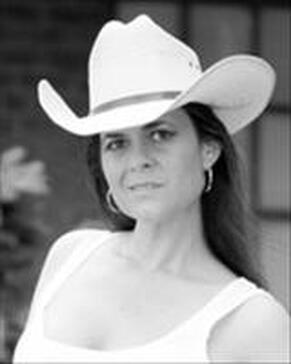 Would you like to get to know more about how the inner book brain of an Indie Author works? This is the place! Periodically, we'll invite an Indie Author to open up their brain, and show us inside. We'll have a conversation that deals a little bit with writing craft, reading influences, and some other fun stuff. Today, we thumb through the pages of Indie Author M.T. Falgoust's grey matter... Discover more about M.T. Falgourst HERE! What literary pilgrimages have you gone on?
My first book, a middle-grade action-adventure called The Gubbins Club: The Legend of Charlie’s Gold (5-Star Readers’ Favorite; NY Book Festival Honoree), is centered on the premise of what if the map inside Robert Louis Stevenson’s Treasure Island actually led to a real treasure, and it’s been sitting on everyone’s shelves for nearly 200 years and no one’s thought to look for it? With the strong influence Stevenson has on the work, I sent a copy of the book after it was published to the Robert Louis Stevenson Club in Edinburgh where the book is primarily set. The secretary loved it and passed it along to the then president of the club who lived in Robert Louis Stevenson’s childhood home. He loved it so much he purchased copies for the children in his life and I was afforded the opportunity to actually stay in the home myself! As a big RLS fan, it was a hoot to look out the same windows over the rooftops as he did. And, if that wasn’t enough to make a gal go ga-ga, I made a trip to The Writers’ Museum in Lady Stairs Close where I gushed over Ian Rankin’s original manuscript for Knots & Crosses. I must also confess, I spent one night at The Witchery in the Armory Suite where Dan Brown stayed and left an enigmatic riddle in the guest book a la DaVinci Code. I don’t think it has been solved to this day. I will likely go back-if only to solve that mystery! (P.S. I left one of my own, too!) What is the first book that made you cry? Old Yeller. Hands down. Don’t give me a book where an animal dies. I just can’t handle it. What is your writing Kryptonite? Time . . . keeps on tickin’, tickin’, tickin’ into the future . . . Do you want each book to stand on its own, or are you trying to build a body of work with connections between each book? Yes. Okay, that’s cheating--answering the same question with one word. Or maybe it’s just prudent editing. At any rate, I write the gamut. I have books, like my award-winning picture book Footprints (5-Star Readers’ Favorite; Green Book Festival Honoree) which are standalones, but I also have several books which are the first in what’s intended to be a series. My new title, The Augur’s Assassin: A Read Between the Vines Mystery (Wagging Tales Press, coming soon!), was wholly written with the concept that we would be revisiting Mystic, Connecticut and solving many more cases with the main character Zoe and her eclectic assortment of acquaintances. How did publishing your first book change your process of writing? With the publication of my first book, I proved I was a writer. Not necessarily to myself (I’ve known since I was 12 that this is why I’m here), but I now had tangible proof to all the folks who thought writing wasn’t a “real” job that it’s a thing. A real thing. And I think that’s where the process of writing changed for me. I started thinking of myself as a business and treating my writing that way. But you know what they say about people who have a job that they love...they never have to work a day in their life. As a writer, what would you choose as your mascot/avatar/spirit animal? A wolf. Writing can be a solitary pursuit, but a wolf also reminds me of loyalty which, as writers, we all must have. We must possess a fierce loyalty to the concept and characters of a story if we’re to see them (and the reader) successfully through the course of a 300-pg book. What did you edit out of your books? (keep it family-friendly, please) Some of my characters, and inevitably it’s the sidekicks, love to talk. They play. They get silly. They’ve been known to make me guffaw out loud at two a.m. in the morning when all sane people are asleep. However, sometimes they don’t know when to shut up! Even if I find them uproarious, if their banter is getting in the way of plotline or flow, they get the red ink! What one thing would you give up to become a better writer? Television. It’s bad enough I have commercial jingles from the 70s still rattling around in my head, but since binge watching has evolved . . . now, it’s near impossible to limit yourself to 60 minutes. What is your favorite childhood book? The Neverending Story by Michael Ende. Why? It’s right there in the title. What is the most difficult part of your writing process? Staying...SQUIRREL...focused. What is the easiest part of your writing process? The ideas. I’ve never been stymied coming up with an intriguing story. I keep a 6X9 ring binder. Right now, it’s about four inches thick and filled with ideas for short stories, children’s books, mysteries, thrillers, and screenplays that I want to write. That’s not counting the idea I wrote on the back of the utility bill this morning, or the one on the Starbucks napkin that I thought of during school carpool, or the one written in eyeliner on the bathroom mirror my husband is BEGGING me to Windex . . . you get the picture. A common misconception entwined with authors is that they are socially inept, how true is that? I can’t admit to being a viable representative cross-section. Besides being an author, I have served in the US Navy. I am a working actor. I am a certified paralegal. I am a certified Pre-K through 3rd teacher. I am a classically trained vocalist. I am an artist. I teach piano and guitar. I worked over 10 years in retail, and I have been a summer camp specialist for over fifteen years. Something tells me there is NOTHING in my makeup that even HINTS at social ineptitude. When did it dawn on you that you wanted to be an author? I don’t know if it was as much that I WANTED to be an author as I was forced into realizing here was something I was pretty good at it and I didn’t hate it. I lay the entirety of the blame on Mrs. Gussman, my fourth grade English teacher. She demanded I write a story even though my nine-year old self loathed the concept of having to come up with that many words in one sitting. Oh, and did I mention it had to be from the point of view of a pencil? “Who knows?” she suggested. “You might have fun.” Forty-one years later, here I am. I guess you could say I got the “point.” Who are your biggest literary influences? It’s a wild mix. Robert Louis Stevenson, as I mentioned, Edgar Allan Poe, Tony Hillerman, Terry Brooks, John Saul, Charles Dickens, Mary Higgins Clark, Jane Austen, Daphne DuMaurier, Mary Shelley . . . I could go on for five blog posts. What’s your favorite movie which was based on a book? Why? Okay. That’s not fair. But if pressed, I guess I’m going to have to say Jurassic Park. While there were some differences (aren’t there always?), I’m a sucker for the grand scope of Spielberg films . . . and when it’s based on an amazing techno thriller like Crichton’s? But I’d be lying if I didn’t say all of The Lord of the Rings films, including Martin Freeman’s movies, aren’t way up at the top of the list! How did it feel when your first book got published? How did you celebrate? I felt accomplished. As far as celebration, one day, I will. Right now, I’m too busy writing the next one. What is that one thing you think readers generally don’t know about authors? We . . . work . . . hard. When it comes to research for your books, are you a hunter or a gatherer? Talk about your research process. I start out as hunter, honing in on one very specific topic I know I need to get believably to the next plot point. Along the way, however, I think I morph into a gatherer, often tripping across something that intrigues me that I usually save and wind up working into the storyline because I think it will intrigue the reader as much as it did me. Take, for instance, the concept of weather control. In my adult action-thriller The Eye of the Storm (Clive Cussler Adventure Society Competition Finalist), I played with the idea of my eco-terrorist villain controlling a devastating hurricane. Far-fetched? Not as much as you think when you research the science in government white papers and other literature. Scary stuff! Could you be housemates with your characters? Why or why not? I think if I were, it would be the most hilarious therapy session ever! In some way, shape or form, most of my characters are a facet of myself. It may not necessarily be an aspect of my psyche that I like, or it may be one I could split a pizza with no problem. I think that’s true of many authors, though. We put a LOT of ourselves into our work. As far as being housemates? I guess I’d better write a character that doesn’t mind doing dishes. What’s your typical writing routine or schedule? Depends if I’m on a deadline. I’ve still been known to pull an all-nighter. Typically, however, I write from 9-2 every weekday and a little longer on weekends. But in truth, I’m kind of ALWAYS writing. I make ample use of the voice memo and note features on my phone, composing paragraphs or jotting down plot ideas whenever they strike. I wrote my children’s board book Ten Little Crawfish on my phone lying in bed one night when my husband’s snoring kept me awake! Writing can be an emotionally draining and stressful pursuit. How do you recharge? Pre-COVID, I loved to travel. Albeit, it was travel related to book tours, school visits, and literary festivals. The Sagittarius in me LOVES to wander. However, no matter what brought me to a location, I always took time to find some pretty sweet things to explore, no matter what city or state I was in . . . challenging hiking trails in Georgia, visiting all the mazes and labyrinths in San Francisco, or descending into the eerie dungeons of Edinburgh Castle in Scotland. My favorite spot to go, though, has a wooden porch that overlooks a valley, and the mountains rise in the distance. Do you prefer music or silence when you write? Do you have a writing playlist? What’s on it? Depends on what I’m writing, but I love the Pandora Journey channel on YouTube. Epic stuff! Which celebrity would you choose to narrate your audiobook? My action-thriller, The Eye of the Storm: Matthew McConaughey My Cozy Mystery, The Augur’s Assassin: A Read Between the Vines Mystery: Sandra Bullock My Middle-Grade Action-Adventure, The Gubbins Club: The Legend of Charlies Gold: Sean Astin What well-known author, living or dead, do you wish could be your mentor? Why? James Patterson or Stephen King. I WILL be that prolific, diversified and successful! What is your favorite of the six senses (touch, taste, smell, sound, sight, intuition) to write about, why? Smell because it’s the sense most strongly associated with memory. What is a favorite location you’ve written about? Have you visited that place? How did you choose which details to include? Edinburgh was AWESOME to write about for The Gubbins Club: The Legend of Charlie’s Gold. Truth be told, however, I hadn’t been there until AFTER I wrote the book. I did a TON of research, though. Neat fact: the gentleman at the RLS Club in Edinburgh asked me when the last time was that I’d been there. He said my details were so spot on it was like walking in his neighborhood. Goes to show you just where you can take your readers if you do the requisite research! Travel back in time (without negative effects for you or the timeline) what year do you visit? Why? That’s a tough one. I think it would have to be a simpler era, with less distractions and more face-to-face human interaction. I’ve always been fascinated with Victorian England as I am an avid Sherlockian. What is something about your hero or villain that drove their character, but you didn’t specifically tell your reader? In my picture book Her Royal Majesty, the Superhero Bride of Frankenstein (5-star Readers’ Favorite), my hero Lizzy is initially driven by the desire for acceptance and is mortified when she’s embarrassed by an errant strand of toilet tissue. Ultimately, she’s more motivated by the desire to help her fellow classmates and turns the situation on its ear with hilarious results! Whether I’m writing for children or adults, I think a truly memorable hero or villain is going to be one where the reader recognizes aspects of themselves . . . and who hasn’t had an embarrassing moment in their life? It’s what we do on the other side of that moment that demonstrates our mettle. Have you ever resuscitated a project you'd shelved? What helped it work better the second time around? Always. I still have material I wrote when I was twelve. Herman J. Flea: Adventurer at Large. It was a shamelessly “punny” piece I penned in sixth grade. Now, while we probably won’t see that work on the New York Times best-seller list anytime soon, I do have a piece that I started back in 1999 after stumbling across an intriguing definition in Black’s Law Dictionary (See. Ideas are everywhere, folks!). I originally conceived the piece as a screenplay and may still revise it and shop it around, but I also have begun translating into novel format. I think what will make it better this time around is a shift in point-of-view. Not the characters, but my own. In her book How to Write a Movie in 21 Days, author Viki King has an insightful chapter on how the writer’s age reveals what’s on their mind and, subsequently, what you write will be a metaphor for their life. According to King, in my thirties when I originally drafted the script, my life metaphor was “unfinished business.” Now, in my, ahem, later years, supposedly my life metaphor is “new beginnings.” The shift has given me fresh eyes and new insight on the material. It’s also fun to look at something you wrote awhile ago and find some nuggets that make you say “Hey, that’s pretty good. And I wrote that!” What do the words “literary success” mean to you? How do you picture it? There are SO many layers to the literary success onion. Theoretically, “literary success” for me is knowing, that at some level, my work as a whole helps to foster social cooperation and communication. That my words change worlds. That it reminds us that our connectedness to the world does not always mean that some have more, and some have less, but that we ALL have stories and THAT is what brings us together. I love calling myself a writer because it justifies the voices in my head. And I mostly write fiction because, let’s face it, the truth is a little hard to believe. But theory doesn’t always pay that utility bill (but that bill DOES make great scratch paper for ideas as we’ve learned). I would like to see a level of success where I can achieve everything I mentioned previously but do it from a place of financial security generated from my writing efforts. Would I welcome “success” on a Patterson, King, or Rowling scale? In a hot New York minute. But I started the professional writing life with a VERY specific goal in mind. A study was done with people who possessed an inclination for music. The results of that study found that if such folks did not cater to that inclination in some way, shape or form, they were 70% more prone to succumb to depression and/or depression-related illnesses. The study intrigued me as I theorized that this is likely true across the entire spectrum of creative pursuits: visual arts, dancing, writing, etc. For me, not having a creative outlet would be Dante’s tenth circle. So, I began to wonder, if you analyzed the rise in school violence along with the point at which arts education started being stripped from the curriculum, would there be an inevitable correlation? I started writing professionally because I want to get to the point of “literary success” where I can take a percentage of my book sales and establish a grant specifically to fund arts education in the schools. So, after all that, I suppose “literary success” for me means being able to give back. Can you tell us about your current projects? Currently, I am working on several book projects scheduled for March release. One is a delightful picture book tale of baseball and perseverance called M.V.P. If we can push through life’s challenges and disappointments, we can be our very own most valuable player. Another is about a little rabbit with big dreams of being Somebunny important, who eventually realizes if he looks in the mirror, he’s already the most important “somebunny” of all. And I’m SUPER excited to be releasing the long-awaited sequel, The Gubbins Club: The Curse of Atahualpa. The five heroes of The Gubbins Club are back. This time, they travel from London to South America and go deep into the heart of the misty Andes mountains . . .but something else lurks behind the veil. Smout and his friends join forces once again to follow the clues through the pages of history and solve a mystery worthy of the greatest detective of all time, Sherlock Holmes. From the towering shadow of Big Ben to the wilds of the South American jungle, they will risk it all to find an Incan treasure list to time. If you’re brave enough to join the club, remember the rules: 1) Follow the clues; 2) Find the treasure; and 3) Try not to get dead. Any advice you would like to give to aspiring authors? Write. Revise. Believe. Repeat. Please provide links and/or instructions about how readers can purchase signed copies of your books. Drop me a line at the publisher’s site at https://waggingtalespress.com. Visit the CATALOG and choose your titles. Pay securely online via PayPal. You can also visit amazon.com and barnesandnoble.com.
What literary pilgrimages have you gone on?
Pilgrimages? That makes it sound very spiritual. The journey that started me toward writing Dani’s Inferno started when my son challenged me, pointing out that I had put aside writing the fiction that I loved to write when I started writing professionally and had put my own God-given dreams on the back burner. That started a time of prayer and soul-searching in which I took a look at dozens of stories I had outlined or started and asked myself, “If I only get the chance to tell one story to the world, what would I want it to be?” What is the first book that made you cry? Charlotte’s Web. I was probably six, and I think my mom spent more than an hour consoling me so that I could get to sleep. Incidentally, it still makes me cry. Doesn’t matter if it’s the book, a stage play, the cartoon movie, this story has always done that to me. I love stories of sacrificial love, and Charlotte’s sacrifice for Wilbur is what started my love for those sorts of stories. What is your writing Kryptonite? I grew up writing in a home with four noisy younger siblings, a dog, and a cat. At any given time, all of them except the cat were likely to want my attention. I really don’t have much trouble tuning everything out and writing. If anything, what I’ve heard others call “the rapture of research” may be my kryptonite. I’ve been known to spend entirely too much time on rabbit trails when I need to research some point or other. One interesting thing leads to another, which leads to another, which doesn’t lead to much addition to the word count. Do you want each book to stand on its own, or are you trying to build a body of work with connections between each book? I don’t see any reason a book can’t do both. I do have a sequel in mind for Dani’s Inferno and am working on a breakout short story based on one of the characters, but I hope that the sequel would stand on its own if read separately. I also have plans to write books that are completely separate and that will likely be standalone books. How did publishing your first book change your process of writing? I don’t know that it really has all that much. One thing that I am doing differently is using date/time/location tags with every scene change now. They will probably be edited out, but having them available makes it easier to answer timeline questions if they arise in the editing process. As a writer, what would you choose as your mascot/avatar/spirit animal? Interesting question. I suppose an ant, because I love their focus and ability to stay on task - a skill I had to work hard at learning. Proverbs 6 in the Bible encourages us to look to the ant for wisdom, pointing out that they work diligently even though no one is looking over their shoulder. As an author, at least before you’re published, no one is cracking the whip and telling you to keep moving. You have to be self-motivated and self-accountable. That said, I lived a long time in Louisiana, so definitely not a fire ant. Those buggers are mean. Just a regular run of the mill ant. What did you edit out of your books? (keep it family-friendly, please) I had initially outlined the book to deal with an abortion but decided it had enough other heavy subject matter. On a funnier note, one part I intended to edit out was when I was writing late at night and realized I’d just had my 17-year-old girl protagonist tell a total dad joke. I shook my head and wrote in my notes to change that the next day. But my then-15-year-old daughter read it, laughed, and convinced me to keep it. What one thing would you give up to become a better writer? Other than my family and my relationship with God, take your pick. Seriously, I think most of us who are serious about writing give up a lot of time - time spent writing, of course (ultimately the only way to get better at anything is to do lots of it), but also time reading and studying the craft of writing. What is your favorite childhood book? Tough call. Charlotte’s Web is still up there, as are the Little House books. Johnny Tremain was a favorite. Probably, if you’re making me pick, though, it’d be The Chronicles of Narnia. Specifically, either The Voyage of the Dawn Treader or The Horse and His Boy. I was first introduced to Narnia when my little brother brought the books home from the school library. Being 11 years old and way too mature for such things, I teased him mercilessly about his silly books about talking animals (not proud of that), then read them myself when no one was looking. Because I was reading them on the sly, I never did read them in order until I was an adult, reading them as bedtime stories to my son. Reepicheep, the noble mouse knight, is still my favorite character in all literature. What is the most difficult part of your writing process? Deciding which idea to work on and sticking with one idea. I spent many years with multiple projects going on at any given time, which led to never finishing anything longer than a short story. I have never understood the idea of writer’s block, but I do have the opposite problem of so many ideas that I have a tough time picking one and buckling down. What is the easiest part of your writing process? Creating the stepsheet or outline. Sticking to it is another story. I tend to approach the process of writing like a planner, but the writing itself like a pantser, so sometimes I do have to go back to the drawing board when my characters carry the story off the rails on me. Fortunately, I enjoy that part of the process, so it’s not terribly tedious. A common misconception entwined with authors is that they are socially inept, how true is that? I think writers are all over the spectrum, but we do tend to skew a bit toward introversion. Personally, I do fine in social situations, and I’m not shy or awkward, but I am introverted and can get along fine with only the people I make up for company most of the time. When did it dawn on you that you wanted to be an author? When I was in first grade. Our teacher, Mrs. Phillips, made a big deal to the whole class about a story I wrote about SCUBA diving with sharks and whales. Apparently, having a distinct beginning, middle, and ending is impressive for a six-year-old. She helped me turn the story into a little hardbound book. I wish I still had it. It’s crazy, but I can still get a case of the feels thinking about her affirming my creative efforts. More than forty years later, I can absolutely say that Mrs. Phillips, my fifth grade teacher Mrs. Kraft, and my eighth grade English teacher Mrs. Chandler are the biggest reasons I became and remain a writer. Who are your biggest literary influences? This is a bit of an eclectic list, but C.S. Lewis, Jerry Jenkins, Francine Rivers, and John Jakes. What’s your favorite movie which was based on a book? Why? The 2005 version of The Lion, the Witch, and the Wardrobe. It’s one of the few movies that I feel actually improved on the book - quite an achievement considering the book is fantastic. The directors did a fantastic job bringing that story to life. How did it feel when your first book got published? How did you celebrate? Incredibly validating. I’ve had lots of ghost-written work published before, and lots of editorials and news articles I’ve written have been in print but receiving an offer to publish my first novel was unforgettable. I didn’t do a lot to celebrate, other than share the information with the screenwriting class I was taking and maybe go out to eat, though. I’m a fairly low-key guy. I mean, I spent the next couple of months smiling a lot and doing virtual victory laps, but not much other than that. What is that one thing you think readers generally don’t know about authors? Sometimes people act like they’re in awe of your accomplishment when you say you’ve written a book. It’s not like it took some kind of superpower. There’s a certain amount of creativity that can’t be taught, of course, but for the most part, writing a book is like any other project - it’s work. Wonderful work, but work. So, I guess it’s that authors are pretty much like the rest of the world. We just have a little bit weirder thing that we spend our time and effort on. When it comes to research for your books, are you a hunter or a gatherer? Talk about your research process. Both. I always have my eyes and ears open for interesting information, interactions, and points of view, but I will also dive deep into research because I want to get things right, especially since I tend to write period pieces and historical fiction. I know as a reader it drives me batty when a writer gets basic historical stuff wrong in their writing, so I try hard not to do that to others. Could you be housemates with your characters? Why or why not? I already am. I mean, there’s a little bit of me in most of the characters, so on some level, they already live here, whether I like it or not. Seriously, though, there are characters I’d love to have a root beer with and characters I’d like to slap. Often, those latter types are the ones that have more of me in them than I’d care to admit. What’s your typical writing routine or schedule? I know this is probably the wrong answer, or at least an unpopular one, but I don’t really have one, at least not all the time. In writing Dani’s Inferno, I promised myself I’d write at least one scene per day and, with very few exceptions, I kept that promise. Whether a scene was 100 words or several pages, I made sure to write at least one full scene. So, when I’m on a project, I do set a routine, but I’m very loose as far as scheduling and I don’t feel like I always need to be in the middle of a project. I think I benefit from having seasons of writing and seasons away from it. Writing can be an emotionally draining and stressful pursuit. How do you recharge? Writing fiction is generally recharging for me. It’s what helps me recharge from the other draining and stressful pursuits of life. When I was doing a lot of journalistic writing, which is somewhat less recharging for me, I would take breaks and read something completely unrelated to what I was working on. Do you prefer music or silence when you write? Do you have a writing playlist? What’s on it? It depends. Sometimes, I need music in the background. Other times, I need quiet. I tend to tailor the music to what I’m writing. In the case of Dani’s Inferno, I listened to a lot of hair rock and Christian rock artists like Petra, DeGarmo & Key, and Amy Grant. With a World War II project I was working on, I listened to a lot of ‘40s music. Which celebrity would you choose to narrate your audiobook? My book switches back and forth between two point-of-view characters, the 17-year-old protagonist and her older brother. Ideally, I’d love to have it narrated so that the scenes in Dani’s head are read by a female and the scene’s in her brother’s point of view read by a male. I guess if I had my pick, I would love to see CCM artists Amy Grant and Carman narrate. I’m probably dating myself by picking artists who were big in the ‘80s, but that’s kind of the setting of the book (early ‘90s), so I think it fits. What well-known author, living or dead, do you wish could be your mentor? Why? C.S. Lewis. In addition to his being such an enduring author, I think we could really connect discussing theology and history. What is your favorite of the six senses (touch, taste, smell, sound, sight, intuition) to write about, why? Probably intuition, though I find I have to be careful not to overdo it. Giving a character too much intuition can feel a bit like cheating, but giving them those occasional flashes of insight can give readers a glimpse into who the character is inside. What is a favorite location you’ve written about? Have you visited that place? How did you choose which details to include? Northern California. And yes, as a matter of fact, I moved to Northern California in December 1990, and was there during the start of the Gulf War, which is when Dani’s Inferno, starts out in Northern Cali. I remember it well because I moved out there thinking the whole state was one big beach and constantly 85 degrees. Turns out, it got down to the teens when I was there (I hadn’t even packed a coat or a sweater). At the time, they were record-breaking lows. I had always wanted to work that little weather-related tidbit into a story, and managed to, albeit in a small way. Travel back in time (without negative effects for y or the timeline) what year do you visit? Why? Not fair to ask me to travel to just one period, but if it can only be one, I’d go back to sometime between A.D. 50 and 60 because my next project is set in that time period and I’d love to see how the common folks lived in the provinces of the Roman Empire (and Ephesus, in particular). What is something about your hero or villain that drove their character, but you didn’t specifically tell your reader? Dani, the titular character, becomes very attached to people and absolutely can’t stand to feel like she’s let someone close down. It makes her a loyal friend but also leads to some poor decisions. Have you ever resuscitated a project you'd shelved? What helped it work better the second time around? Yes. In fact, Dani’s Inferno originally started when I was working with at-risk youth in a residential facility. I made it up on the fly as a series of bedtime stories based loosely on the Parable of the Prodigal Son. I started to write it dozens of times, and outline it several more, but it was never quite what I wanted it to be until one time I made one change - I changed the prodigal to a daughter and the story instantly became 1,000 times stronger. It went from a story I’d have liked to have told to one I had to tell. What do the words “literary success” mean to you? How do you picture it? If someone reads my book and is moved by it, especially if they experience the love of God through it, I consider that success. Numbers are great, and I’d love to sell millions of books, but it’s honestly not about sales or bestseller lists (cool as those are). For me, it really is about one reader turning the pages, finding something to relate to, and walking away with some encouragement, consolation, comfort, or really anything that makes them feel their life is better for having spent a few hours reading my scribblings. Can you tell us about your current projects? I’m working on outlining several projects. The frontrunner for my next project is a story set in first century Ephesus and deals with the relationship between a young man whose father makes silver idols for the Artemis shrine Ephesus was noted for and the family’s Christian slave. The other projects I could possibly move ahead of it include a love story set during the Louisiana Maneuvers in the runup to US involvement in World War II. There is a humorous and historically true interaction that took place between General Patton and a local priest in one of the small local towns that gave me the initial idea to set a story during those exercises. And there’s a sequel to Dani’s Inferno that I might move to the front of the line. Any advice you would like to give to aspiring authors? At the end of the day, if you want to be a writer, you need to write. With that said, though, take time to learn the craft. Read as much as you can about writing. Pick other writers’ brains as often as you can. And read a lot of the types of books you’d like to write. Please provide links and/or instructions about how readers can purchase signed copies of your books. The best place to buy my book is on Amazon, though it’s also available on Barnes & Nobles and most places where you can buy books. If someone would like a signature, they can contact me directly at my Facebook author page and I’m happy to make arrangements to send a signed plate or otherwise sign their copy. https://www.amazon.com/Danis-Inferno-Scott-M-Rutherford-ebook/dp/B08H4WWCZL https://www.facebook.com/Scott-M-Rutherford-Author-2011258115667743
What literary pilgrimages have you gone on?
The Pages Festival—THAT was my literary pilgrimage. My other ‘literary pilgrimage was a trip to Israel where we “followed the Bible”, in search of the biblical Mt. Sinai. It was quite an experience. What is the first book that made you cry? The Diary of Anne Frank & To Kill a Mockingbird. I don’t remember which I read first. What is your writing Kryptonite? Descriptions of people and settings, I prefer to get to the point asap. Do you want each book to stand on its own, or are you trying to build a body of work with connections between each book? Both. I try to put myself in a reader’s shoes. I write about particular legal and political issues of the day. If a particular issue appeals to a reader, I don’t want to force a reader to read my entire list to be able to read about his or her chosen topic. As a writer, however, character interactions and introduction are contextually important, and I’d prefer that my readers read my series novels in order. How did publishing your first book change your process of writing? I wrote and published my first novel, Betrayal of Faith, from a personal case experience. The novel was about the ‘case of my life.’ I wouldn’t say it changed my process; I would say it created my process. It became more of a ‘springboard’ for future novels. Once I experienced the process of writing a novel and knew I could actually do it, the question was: Can I write novels about cases and/or issues I did not personally experience. For the second novel, I chose a topic that felt personal to me, the 2016 election. After I wrote Betrayal of Justice, choosing important legal and political issues of our time and writing about them became ‘my thing.’ As a writer, what would you choose as your mascot/avatar/spirit animal? A legal eagle What did you edit out of your books? (keep it family-friendly, please) I try to make the law interesting, while still explaining the issues I write about in a reader-lay person-friendly way. Some people praise my work and say I’ve accomplished my goal of discussing legal issues in an entertaining way. Others have said I explain too much. I don’t know who’s correct, but I do want to make sure readers understand what I am writing about and why I am so passionate about a particular issue. What one thing would you give up to become a better writer? I’ve already done that. I published my first novel in my 60’s. My leisure time and retirement have been sacrificed, to some extent, for my writing career. On the other hand, my writing journey has been interesting and enjoyable, perhaps, enhancing my ‘golden years.’ I believe, going forward, that I have developed a nice balance between the two. What is your favorite childhood book? The Cat in the Hat by Dr. Suess. What is the most difficult part of your writing process? If you write to “sell” books (not everyone writes to sell) as I do, the most difficult part is developing recognition and marketing my books. Assuming that is not what is meant by the question, it is dealing with ‘fits and spurts’ or ‘writer’s block.’ If I’ve put a book down for a while, I won’t always remember where I left off, and I end up rewriting something that I’ve already covered. This isn’t always a bad thing, though, because, sometimes, I write it better the second time. What is the easiest part of your writing process? Topics. Fortunately or unfortunately, there are a plethora of legal issues, with serious consequences in the real world, for Zachary Blake to tackle in his fictional world. Hopefully, my novels and Zachary’s experience in dealing with them help readers understand their importance to our fellow citizens. It shouldn’t matter whether the reader is currently dealing with a particular issue personally. We can all have and/or develop more empathy for our fellow citizens. A common misconception entwined with authors is that they are socially inept, how true is that? With all due respect, the question is phrased with an inherent bias. You declare that social ineptitude is a ‘common misconception’ and then ask if it is true. It can’t be true if it is a misconception, right? In my case, however, it is totally untrue. I’m a very sociable guy and I write very socially conscious stuff. Genius (not me—Hemingway, Shakespeare, Twain/Clemons, F. Scott Fitzgerald, J.D. Salinger, and the like) might appear to be socially inept because of their genius, if you get my drift. Could a mere mortal have a routine conversation with Albert Einstein? When did it dawn on you that you wanted to be an author? After I finished my first book, I realized I had many more legal issues and topics to write about, and much more I wanted to say. Who are your biggest literary influences? All of the other legal-themed authors who came before me. Special mention to Harper Lee, because social injustice in our legal and political systems are of particular interest to me, which is reflected in my novels. What’s your favorite movie which was based on a book? There are so many, this is a difficult question. If absolutely pressed to name one, I would have to say Gone With the Wind because of the sheer enormity of the project and the fact that the movie has stood the test of time. How famous would Margaret Mitchell’s novel be today, but for the movie? A similar statement might be made for L. Frank Baum’s The Wonderful Wizard of Oz or Mario Puzo’s Godfather Trilogy and other movie classics that were made from novels. How did it feel when your first book got published? How did you celebrate? I self-published. It was quite costly, not a good experience, and I almost gave up. I probably should write a book about how to avoid all the mistakes I made. I have learned a lot since then and I celebrate my entire body of work, the people I have met, the knowledge and experience I have gained as I have navigated the process. What is that one thing you think readers generally don’t know about authors? I don’t have tremendous insight to offer here. I would say the same thing I often say about celebrity worship in America. We are all people, doing our thing, struggling (or, in some cases, not struggling) to get by, just like you. No one is better than you or smarter than you, just different than you. We can all learn from each other. When it comes to research for your books, are you a hunter or a gatherer? Talk about your research process. Both. Probably more of a gatherer, though. I filter through mountains of information before I ever sit down and condense it all into a novel. Could you be housemates with your characters? Why or why not? It depends on the character. Some of my characters are pure evil and would make terrible housemates. I’d be envious of Blake; he’s a much better lawyer than I am, but I could certainly be his housemate. For some reason, most of my novels feature a strong female (or two or three) protagonist, and they are my favorite characters. I love them all and could definitely be housemates with them (but my wife would object). What’s your typical writing routine or schedule? I don’t have a routine or schedule. I write in fits and spurts, unfortunately. I try to find time to write every day, but it never works out. My real job, my family, and other things often get in the way. Having said that, I have managed to write six novels in four years. There have been lots of “spurts,” I guess. Writing can be an emotionally draining and stressful pursuit. How do you recharge? I compartmentalize reasonably well. The difficult part for me is that, while I write fiction, my novels are usually based on real events in America. My first novel was based on real cases and real people caught up in the Catholic Church’s clergy abuse scandals. 40 years after the fact, my clients and others like them are still suffering from the after-effects of these events. I’ve written about white supremacy, police shootings, school shootings, religious and racial discrimination, political gamesmanship, immigration tragedies, and the Holocaust, inspired by actual events. Real people have suffered real tragedy in America and abroad. I try to offer practical and sensible solutions, which helps a bit. Do you prefer music or silence when you write? Do you have a writing playlist? What’s on it? Silence is golden when I write. No playlist. Which celebrity would you choose to narrate your audiobook? 0My novels are narrated by Lee Alan, a legendary radio personality in the Detroit area. He did a beautiful job and the audiobooks are compelling versions of my work. If I had an unlimited budget, however, I would have multiple voices for different characters. As I understand the question, however, the greatest voice in behind the character narration in the history of the world, is James Earl Jones. His is like the voice of G-d! What well-known author, living or dead, do you wish could be your mentor? Why? This is a very difficult question. As I indicated previously, I stand on the shoulders of all of the legal content authors who came before me. If I were to choose one author who I believe could make me a better author, it would be Pat Conroy. His words ‘sing’ to me. What is your favorite of the six senses (touch, taste, smell, sound, sight, intuition) to write about, why? Intuition? My word would be “feelings”. Something consequential happens to my protagonist in each novel. I want the reader to feel, in a very personal way, what that character is feeling. If a reader experiences a deep visceral connection to the character, perhaps that reader will help effectuate change in America. What is a favorite location you’ve written about? Have you visited that place? How did you choose which details to include? Detroit, Motown, the Motor City, Hitsville USA, the Paris of the Midwest, The D. Detroit is the most misunderstood and misrepresented city in America. Real people live here. As to details, I chose them as they seemed relevant to what I was writing, no rhyme or reason, but with the intent to convey what is real and wonderful about my hometown. Check out the skyline on my website, at www.markmbello.com. Beautiful! As I write this I am thinking about Sammy Davis, Jr.’s “Hello Detroit.” You’ve won my heart! Travel back in time (without negative effects for you or the timeline) what year do you visit? Why? The roaring 20’s. Sounds like everyone had a great time! I do believe, however, that reality might be somewhat different than historical reporting of reality. How true is ‘history’ and who is reporting it? Is it sugar-coated to make us feel good about ourselves? We all make our own life experiences. Who’s to say we aren’t living through the best times in history? Considering what the country has experienced in the past few years, that concept might be tough to swallow, but those who lived through other times, might just be envious. What is something about your hero or villain that drove their character, but you didn’t specifically tell your reader? I don’t believe this applies to my heroes or villains. I would say, however, that they are not all created equally. By way of example, some of my villains are pure evil and some are quite tragic. Likewise, my heroes get there on much different roads. Have you ever resuscitated a project you'd shelved? What helped it work better the second time around? Yes—Nothing more than a fresh look or a new perspective influenced by time. What do the words “literary success” mean to you? How do you picture it? Huge numbers of people finding and reading my work, spurring them to action to create more fairness, justice, and equality in our world. Can you tell us about your current projects? My latest novel, Supreme Betrayal will be released in the Spring 2021. It is about the political and legal battle waged to seat a United States Supreme Court Justice. Do character, morals, or good and evil matter? Or, have our politicians become so jaded, all that matters is political ideology? I just finished a Zachary Blake novella, set in Detroit, near the time of Zack’s Bar Mitzvah, which recounts his grandfather’s Holocaust experience. The novella will be available on Amazon, but readers may choose to download it for free at my website. Finally, I am currently writing a novel about our country’s immigration crisis, focusing on a Central American family who overstayed their visa and a Syrian Muslim who becomes a hostage when she tries to return home to visit her family in Syria. This has been a very interesting and enlightening experience. As the grandson of immigrants, I keep thinking “There but for the grace of G-d, go I.” Any advice you would like to give to aspiring authors? Find your passion and just write, baby! Please provide links and/or instructions about how readers can purchase signed copies of your books. Order the book on Amazon and mail it to me with a self-addressed, stamped media mail envelope to 7115 Orchard Lake Road, Suite 320, West Bloomfield, MI 48322 and I will sign it and get it back to you via the media mail envelope provided, or . . . Purchase the book directly from our website at https://www.markmbello.com, request a signed copy, and I will sign it before I send it to you. Thanks, this was thought-provoking and entertaining.
What literary pilgrimages have you gone on?
I haven’t been on very many literary pilgrimages, but my most memorable was when we were visiting a friend in England and she took us to London on our last day there. You best bet that we rode the tube in the London Underground, and though we didn’t stop everywhere Richard Mayhew did in Neil Gaiman’s Neverwhere, I at least recognized each stop. We also stopped at Platform 9 & 3/4 at King’s Cross. What is the first book that made you cry? Hmm, good question. Probably Harry Potter and the Goblet of Fire. What is your writing Kryptonite? Oh, gosh. The Research Rabbit Hole gets me every time. Do you want each book to stand on its own, or are you trying to build a body of work with connections between each book? I am currently editing a spin-off to The Techno Mage that could act as a standalone… but as a Pantser, I don’t have a preference on if my books connect or not. Whatever happens at the time I write is good enough for me. How did publishing your first book change your process of writing? I learned so much from my debut novel The Techno Mage. And while I really should apply what I learned to the writing stage (using all five senses in description, no info-dumping, showing rather than telling), I have to apply it to the editing stage, instead. When I write, I write bare-bones. I just need to get the idea out of my head, then I can embellish it. As a writer, what would you choose as your mascot/avatar/spirit animal? I had to laugh at this question because the only thing that I could envision was a dog with “squirrel!” syndrome. That’s probably my mascot! What did you edit out of your books? (keep it family-friendly, please) There are a few things that I edited out of The Techno Mage, but one of the biggest things was that I edited out an entire character. It pained me so much, but that’s alright: he makes his appearance proper in the spin-off! What one thing would you give up to become a better writer? Definitely my perfectionism. I could go without sitting there for hours on end trying to find the correct word to describe something. What is your favorite childhood book? Green Eggs and Ham by Dr. Seuss has always been my favorite. I made sure it was part of my son’s bookshelf before he was even born! What is the most difficult part of your writing process? The editing process. I still haven’t perfected it, yet. What is the easiest part of your writing process? As long as I don’t have writer’s block (because as a Pantser, it definitely happens), then the actual writing—and subsequent info-dumping—is the easiest part. A common misconception entwined with authors is that they are socially inept, how true is that? I think that being an author has nothing to do with it. There are authors who are great at being social. They’re great speakers, they’re super friendly…. My own social ineptitude stems from anxiety. I’ve always been the shy kid even before wanting to be an author. When did it dawn on you that you wanted to be an author? I’ve always loved creative writing in school, and that love was definitely what started my desire, but it wasn’t until 2011 that I decided to get serious about it (or as serious as I could without knowing anything about the process). Who are your biggest literary influences? Neil Gaiman is at the top of that list, by far. I also really love Margaret Weis and Wilbur Smith. What’s your favorite movie which was based on a book? Why? Hmm. Probably Inkhart, and not just because Paul Bettany is in it (*wink*wink*). I enjoyed the premise of being able to read stories to life enough that I eventually bought and read the trilogy. How did it feel when your first book got published? How did you celebrate? It felt exciting, yet at the same time very stressful. Like….you work so hard for so long and now it’s finally out and people can finally read it! But at the same time oh no! That means people will read it and judge! On release day I celebrated with delicious cupcakes from a baker friend. She put my book cover made of fondant on the cupcakes, it was cute! I also did some live readings throughout the day on both Facebook and Instagram. What is that one thing you think readers generally don’t know about authors? I think that readers don’t know about the amount of work that it takes to not only publish a book, but also launch it. I think they are aware that it is hard work, but don’t know exactly how much hard work is put into it. When it comes to research for your books, are you a hunter or a gatherer? Talk about your research process. Both! I’ll hunt for some info and because I’m prone to Research Rabbit Holes, I’ll find interesting tidbits of info and I’ll save it for later. Could you be housemates with your characters? Why or why not? I could definitely be housemates with the MCs of The Techno Mage, and even with the MCs of the spin-off. I think we’d all complement one another and help each other out around the house. What’s your typical writing routine or schedule? Believe it or not, I actually only write during November for NaNoWriMo (National Novel Writing Month). My routine for November 2020 was drastically different than previous years because I no longer had a 9-5 job in the way. My schedule in November was 4k words a day, which had been cut up into 2k words in the morning, 1k in the afternoon, and 1k in the evening. Writing can be an emotionally draining and stressful pursuit. How do you recharge? Mindless TV, mindless gaming, and mindless scrolling through social media. Do you prefer music or silence when you write? Do you have a writing playlist? What’s on it? I have no preference. I can just as easily write in silence like I can with instrumental music, or even music with lyrics. My playlist for the spin-off wasn’t too long, and actually only contained four songs: Brass Goggles by Steam Powered Giraffe, Roundtable Rival by Lindsey Stirling, Dark Carnival by Frenchy and the Punk, and Steampunk Revolution by Abney Park. Which celebrity would you choose to narrate your audiobook? Paul Bettany. Definitely Paul Bettany. *swoon* What well-known author, living or dead, do you wish could be your mentor? Why? Neil Gaiman, without a doubt. When I first moved to the USA, my husband took me to Borders (remember those?). I grabbed this book called American Gods by this author that I had never heard of, and was instantly blown away. I then went on to read everything else that I could that was written by him, including children’s books. I absolutely love his storytelling. What is your favorite of the six senses (touch, taste, smell, sound, sight, intuition) to write about, why? Probably sight. I always love trying to describe exactly what I see in my mind’s eye, and I am constantly looking at pictures to better describe things. What is a favorite location you’ve written about? Have you visited that place? How did you choose which details to include? In The Techno Mage, Ikarim and Arteus briefly fly over a forest that has been freshly hazed. I specifically chose the Hoia Baciu forest in Romania because of the mysterious shape of the trees, which could have easily been the result of the haze. Personally, I’ve never visited, but I would absolutely love to! I’ve done a lot of research on Vlad Tepes (Dracula) and the haunted and mysterious forests and castles surrounding him. How could I NOT include it in my novel? Travel back in time (without negative effects for you or the timeline) what year do you visit? Why? Ohh! I want to go back to Ancient Egypt. I’ve always had a fascination with it. I’d probably specifically choose the reign of Khufu (2589 BC – 2566 BC) to see the Pyramid of Giza being built. What is something about your hero or villain that drove their character, but you didn’t specifically tell your reader? Though he is a minor character, the sky pirate Captain Keenan saves Magaliana from one of his crew...and there is a very specific reason as to why, which I delve deeper into in his spin-off! Have you ever resuscitated a project you'd shelved? What helped it work better the second time around? I am currently working on a previously shelved project as we speak! I have an Urban Fantasy manuscript that just seemed far too complicated to be the first book that I release, so I shelved it for later. I pulled it back out after releasing The Techno Mage, and I am slowly working on it. There is no rush to it. And now that I’ve published once, it seems like the confusing pieces of the puzzle are falling in place better. What do the words “literary success” mean to you? How do you picture it? To me, literary success is writing books that I’m proud of to a loyal readership who are as excited to read them as I am to write them. Can you tell us about your current projects? Rise of the Sky Pirate (working title) is a spin-off of my debut Steampunk adventure The Techno Mage featuring the infamous sky pirate Captain Keenan and how he came to gain that notoriety. Any advice you would like to give to aspiring authors? My best advice stems from a Neil Gaiman quote: “Trust Dreams, trust your heart, and trust your story.” Don't let doubt pull you down. If Imposter Syndrome rears its ugly head, talk to someone. If you don't know where to start, don't be afraid of investing in yourself. Don't let anything get in the way of your dreams. As for the writing itself, double quote win from Neil Gaiman: "This is how you do it: You sit down at the keyboard and you put one word after another until it's done. It's that easy, and that hard." Please provide links and/or instructions about how readers can purchase signed copies of your books. You can purchase signed copies of The Techno Mage by visiting http://www.swraine.com/shop
What literary pilgrimages have you gone on?
Oh, a few! I’ve done a literary trek through Paris, one through Warsaw Poland and then I’ve done some local ones like reading books by local authors. What is the first book that made you cry? Probably Anne of Green Gables. What is your writing Kryptonite? I have a new computer and I’m terrified of rebooting it…. Do you want each book to stand on its own, or are you trying to build a body of work with connections between each book? I am all over the place right now, but I am working on a family story which is non-fiction and I have a few ideas for some fiction books that would stem from it. How did publishing your first book change your process of writing? My very first book was self-published, my second was with an Indie Press, and the third I’m aiming for Traditional Publishing, so my process has changed quite a bit. The real breakthrough I had was that I realized I could actually do it. As a writer, what would you choose as your mascot/avatar/spirit animal? Maybe a falcon because they can travel vast distances and see the world from a different perspective. What did you edit out of your books? (keep it family-friendly, please) I’m going through that process right now. I specifically over wrote, so now I’m trying to trim down stories and events that don’t push the narrative forward. What one thing would you give up to become a better writer? Having a long term career and home base. I’ve kind of done this, I move frequently and to date I’ve had more jobs than I can count on one hand. What is your favorite childhood book? Growing up I read anything and everything I could get my hands on, but one of the books that impacted me the most was probably The Neverending Story. What is the most difficult part of your writing process? Staying confident when I hit a roadblock. What is the easiest part of your writing process? The actual writing part when I stop overthinking everything. A common misconception entwined with authors is that they are socially inept, how true is that? I think that is just a myth. While I do like my quiet private time, I’m actually very good in social situations. I took acting lessons and spent many years teaching (Pilates) so I can always hold my own when needed. When did it dawn on you that you wanted to be an author? Well I got my first rejection when I was eight, so I would say that around then. Who are your biggest literary influences? It’s funny, but they seem to change as I evolve. I would say that I often go back to Murakami, Camus and Kafka. What’s your favorite movie which was based on a book? Why? Hmm…. Well, it’s not exactly a movie but Unorthdox (a mini series on Netflix) was superb. I was completely absorbed by the story and the fact that it differed a bit from the book didn’t bother me at all. Then again, I always have a soft spot for The Princess Bride and yes, I’ve seen it about a million times. How did it feel when your first book got published? How did you celebrate? Funny enough, there wasn’t much fanfare for either of my books. I received the advanced reader copies of my second book while I was at a conference so I had a mini ‘yay’ moment by myself. It was very surreal, holding it for the first time. What is that one thing you think readers generally don’t know about authors? How much we agonize over every word that goes into our books. When it comes to research for your books, are you a hunter or a gatherer? Talk about your research process. My first book was an accumulation of 20+ years of working in the fitness industry. I had already written several hundred blog posts and articles on the subject, so that mainly involved gathering everything and putting it together. My second book, Tell Me What You See was more of a creative endeavour that came about during a really rough moment in my life. I was able to completely lose myself in the process. My current WIP is a family story which means hours of interviews and research and even some travel. I have piles of photo albums and letters that I take notes on and then add to my story. Could you be housemates with your characters? Why or why not? Currently no. I love my family but I don’t want to live with them. What’s your typical writing routine or schedule? I think about my book 24/7 and I write in bursts throughout the day. I’m also a freelance writer as well as the managing editor for a literary magazine, so my writing times are flexible. Writing can be an emotionally draining and stressful pursuit. How do you recharge? Running and taking ballet classes before COVID and now, going for long walks with my husband and of course, reading everything I can get my hands on. Do you prefer music or silence when you write? Do you have a writing playlist? What’s on it? No music, but I often have the TV going in the background. I couldn’t tell you what is on but I like the noise. I’ve also started getting up and jogging on the spot every hour or so, that really helps me focus. Which celebrity would you choose to narrate your audiobook? Meryl Streep. What is your favorite of the six senses (touch, taste, smell, sound, sight, intuition) to write about, why? Sight. I am a very visual person. I have a degree in screenwriting and I find that I often fall back on the techniques I learned in school. It was also the inspiration for my book, Tell Me What You See. What is a favorite location you’ve written about? Have you visited that place? How did you choose which details to include? It would have to be New York. I’ve been there several times over the years and it’s a city that is near and dear to my heart. There was one event in particular that involved a stalker and Louboutin heels which made for a great story. Travel back in time (without negative effects for you or the timeline) what year do you visit? Why? I recently re-watched Midnight In Paris so I would have to say Paris in the 20s. I would love to sit down with some of those writers and artists. What is something about your hero or villain that drove their character, but you didn’t specifically tell your reader? Since I am writing a nonfiction novel I have kept some of the more personal details out of the book. I don’t believe in airing dirty laundry and the story works without revealing everything. Have you ever resuscitated a project you'd shelved? What helped it work better the second time around? The book I’m currently working on is one that has had many iterations over the years. I took agent feedback seriously and decided to rewrite my book. Then I found an amazing editor who has been working tirelessly with me to take it to the next level. What do the words “literary success” mean to you? How do you picture it? That’s a tough one. I think it would be getting recognized by major festivals and national organizations. Can you tell us about your current projects? Other than the nonfiction family story, I’m also working on a series of short stories that are based on real events/observations from my travels. Any advice you would like to give to aspiring authors? Don’t overthink your writing, don’t spend too much time agonizing over each sentence, just write. Also, try to get published, send out opinion pieces or articles, it does wonders for your self-esteem. For me, publishing thousands of blog posts led to writing articles for online publications which led to writing my first book. Please provide links and/or instructions about how readers can purchase signed copies of your books. The best place to find my book is on Amazon.com, I’m happy to send a handwritten note. Or get in touch with me through my website, carolinetopperman.com
What literary pilgrimages have you gone on?
I think writing my first book, which was non-fiction, was a sort of pilgrimage. It took ten years to write—I had two tiny boys when I started it so even finding time to write was a challenge. The book is about my experiences as a pastor’s wife and how I never felt like I fit that role. It’s also about my struggle with anxiety and anger. It was very cathartic to write out my thoughts, feelings and experiences. Going from asking the question, can I write a book to actually writing it was a pilgrimage of sorts. What is the first book that made you cry? The Little Match Girl was one of the first stories I ever heard that made me at least feel very sad. I was never much of a crier. But even at that young age, I was aware how a story could affect your emotions. What is your writing Kryptonite? I never want to unleash negative events and consequences on my characters. I try to protect them at first. It takes a conscious effort on my part to throw the bad stuff at them. Do you want each book to stand on its own, or are you trying to build a body of work with connections between each book?At the moment my fiction books are a body of work with connections but I’m working on other manuscripts that are totally unconnected and also different genres. How did publishing your first book change your process of writing? As I said, my first book was non-fiction. Publishing it gave me the courage to try writing fiction, along with some encouragement from my writing partners. With that courage in my back pocket, I signed up for NaNoWriMo and wrote my first novel, which I’ve since published. NaNoWriMo has changed how I write. I always use November as a time to start a new project and get words on a page. As a writer, what would you choose as your mascot/avatar/spirit animal? A rabbit. We have a pet dwarf rabbit named Whiskers. What did you edit out of your books? (keep it family-friendly, please) I had to really edit my main protagonist in Exit Stage Right. At first, she came off a little too rough around the edges. What one thing would you give up to become a better writer? That’s a hard question. I would give up coffee. I drink at least three cups a day so that’s saying something. What is your favorite childhood book? Anne of Green Gables What is the most difficult part of your writing process? Balancing the marketing with the actual writing. I could spend a forty-hour week just doing the marketing for my work. Plus, I work part-time at a library. I need more hours in a day, but don’t we all? What is the easiest part of your writing process? Is there an easy part? Hmm. I think starting a new project is easy because it’s exciting and there’s so much possibility in those first few chapters. No plot tangles to get yourself out of. A common misconception entwined with authors is that they are socially inept, how true is that? A little bit true. I’m really good at one on one but in a group, not so much. I don’t do small talk well. When did it dawn on you that you wanted to be an author? I’ve wanted to write since I was a kid. I told myself stories from a young age. Who are your biggest literary influences? Lucy Maud Montgomery, Louisa May Alcott, Sarah J. Maas. Any good writer influences me. I read their stories and ask myself, “How did they do that?” What’s your favorite movie which was based on a book? Why? One True Thing by Anna Quindlen. The mother/daughter dynamic was so well portrayed by Meryl Streep and Renee Zellweger. How did it feel when your first book got published? How did you celebrate? It was surreal actually. I’d dreamed about it for so long. I kept asking myself, “How can this be happening?” We did a big book launch with family and friends to celebrate. What is that one thing you think readers generally don’t know about authors? I’m a huge reader and I’m always surprised how normal authors are when I meet them. In my mind, they are rock stars but in reality, they could be your neighbour. When it comes to research for your books, are you a hunter or a gatherer? Talk about your research process. I’m a gatherer I think. Not a big fan of research so I’ll never write a historical book. Too many details. That being said, I do like interviewing people. In Exit Stage Right, I had to learn about injuries and physical therapy so I interviewed a friend’s daughter who is a PT. In my new book, I interviewed a hockey goalie to learn about training, etc. You have to be interested in what you research which is why you never want to write about something you’re not passionate about. Could you be housemates with your characters? Why or why not? No, I couldn’t be housemates with my characters. I’m introverted and way better on my own. What’s your typical writing routine or schedule? During NaNoWriMo, I get up at 5am and write for two hours. The rest of the year I try to write in the morning because that’s my best time but I’m still trying to figure it out. It’s hard to balance family, job, and writing. And I can’t figure out why I can do it during NaNoWriMo but not after it’s over. Writing can be an emotionally draining and stressful pursuit. How do you recharge? I walk and do yoga. I need lots of alone time to recharge. Do you prefer music or silence when you write? Do you have a writing playlist? What’s on it? Silence. I can’t have any music playing. It interrupts the flow of thoughts. I will sometimes listen to music as I walk and it inspires me and gives me ideas but then when I sit at my desk I have to turn it off. Which celebrity would you choose to narrate your audiobook? I don’t want a celebrity but I would love Angela Dawe, who narrated Then There was You by Kara Isaac, to narrate my book. She was so expressive, I could see in my mind the character rolling her eyes, Angela’s voice was that expressive. What well-known author, living or dead, do you wish could be your mentor? Why? Stephen King. Obviously he’s figured it out. What is your favorite of the six senses (touch, taste, smell, sound, sight, intuition) to write about, why? Smell. Maybe because I have a sensitive nose. An aroma can be good or bad, subtle or strong, and it adds depth to the setting and scene. What is a favorite location you’ve written about? Have you visited that place? How did you choose which details to include? A summer camp. I went to camp as a kid and my own kids have too. I included some details from my kids’ camp experiences in the book such as an indoor climbing wall that was part of the longhouse. It fit with my sports theme in the book. Travel back in time (without negative effects for you or the timeline) what year do you visit? Why? I’d like to go back to the 60’s. It’s not that far back in time but there was so much happening in the world. I wanted to be a journalist and it would have been incredible to cover some of those stories. What is something about your hero or villain that drove their character, but you didn’t specifically tell your reader? I maybe didn’t come right out and tell the reader but I hinted at it in Exit Stage Right. Shelby, my antagonist felt unloved by her mother. Have you ever resuscitated a project you'd shelved? What helped it work better the second time around? Not yet. What do the words “literary success” mean to you? How do you picture it? It’s changing. Literary success would be writing full-time and making a living off it. I would love to go the traditional route and have people do marketing and promotion. But there are some huge perks to Indie publishing. Literary success would also be speaking more at events, schools, bookstores—about books and writing. Can you tell us about your current projects? This spring I have a companion book to Exit Stage Right coming out titled Face Off. It’s Shelby’s story. It takes place at an elite sports camp for the first half of the book. She’s been sent there by her mother and she has to prove she’s deserves to be there. Ballet dancers are athletes too. Her nemesis Tristan, a NHL prospect, doesn’t agree. They face off with each other in a series of challenges, hoping to prove the other wrong. Any advice you would like to give to aspiring authors? Read, read, and read some more. Especially the genre you want to write. Then sit your butt in a chair and write. Don’t let anything stop you. Please provide links and/or instructions about how readers can purchase signed copies of your books. For signed copies, you can email me at [email protected] or contact me through my websitewww.jenniferwillcock.com |
WelcomeYou'll find some interesting stuff here... some Op Eds, some Information, Book Reviews, and More. Poke around the categories and see what ruffles your feathers... in a good way! Archives
July 2024
Categories
All
|

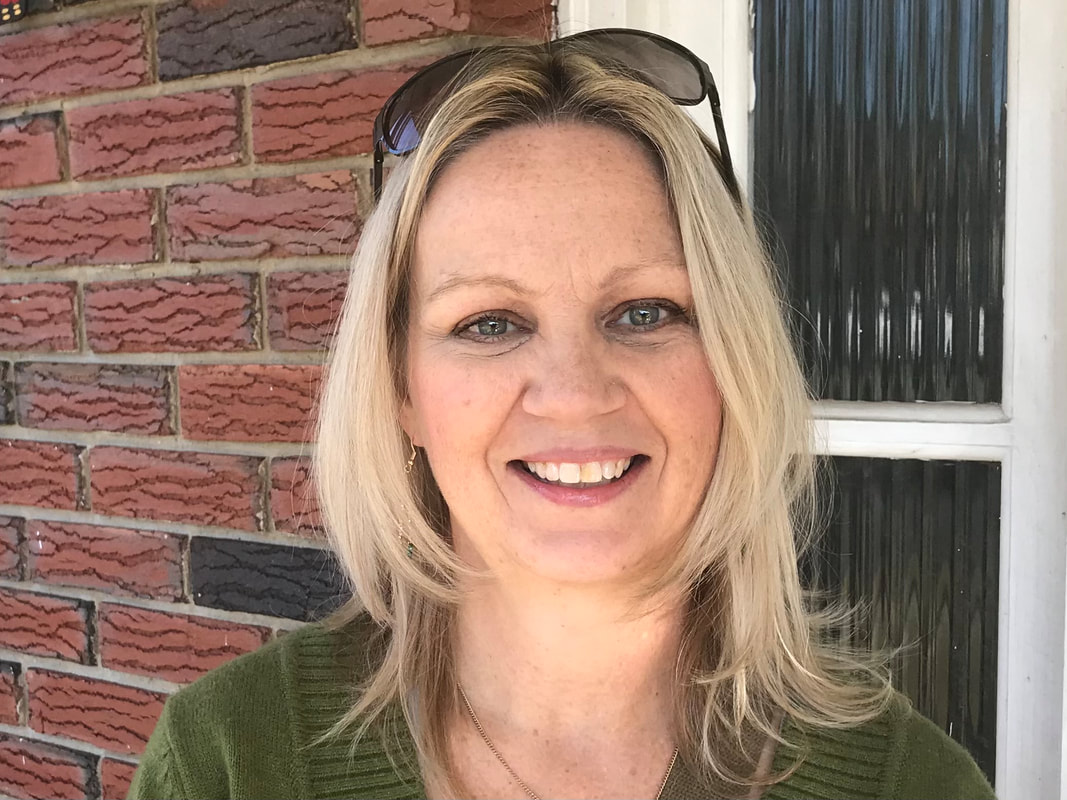
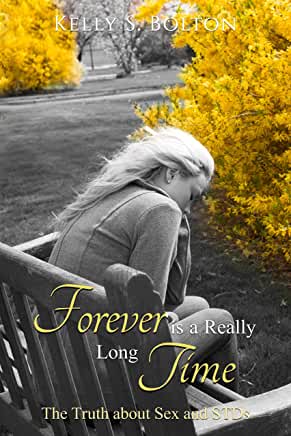
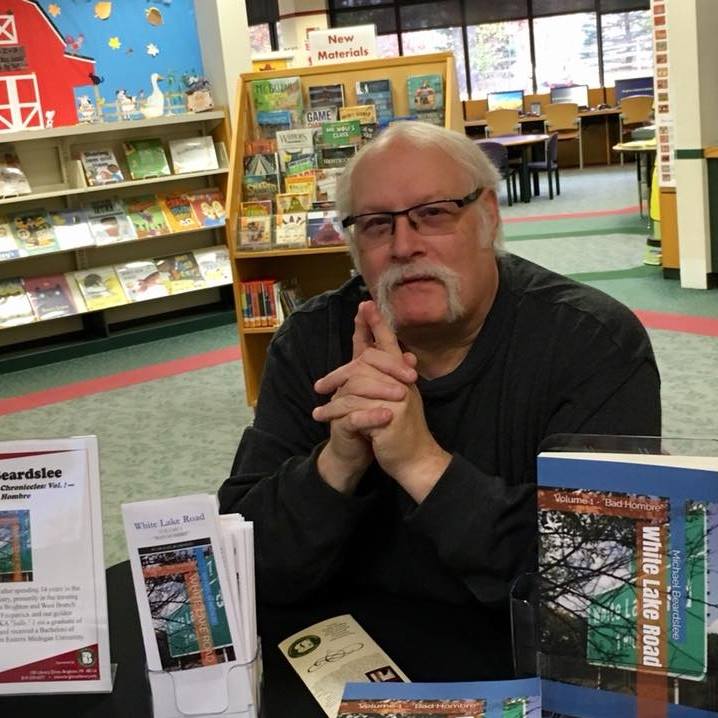
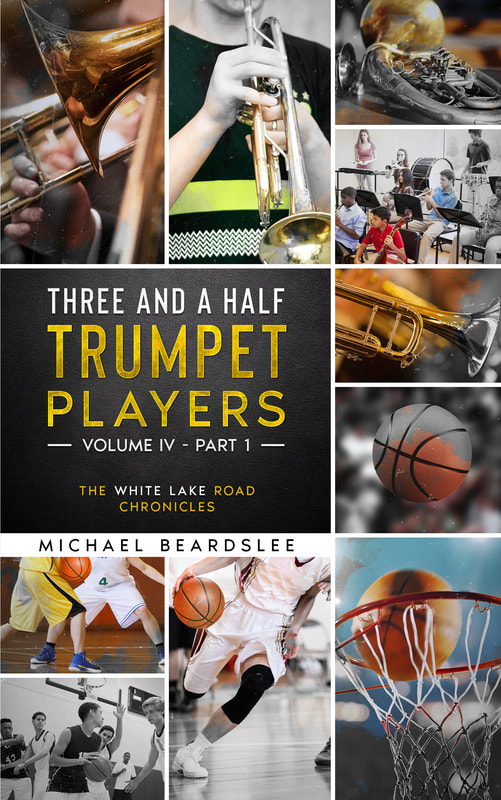
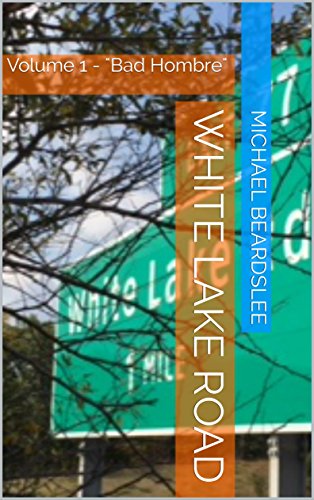
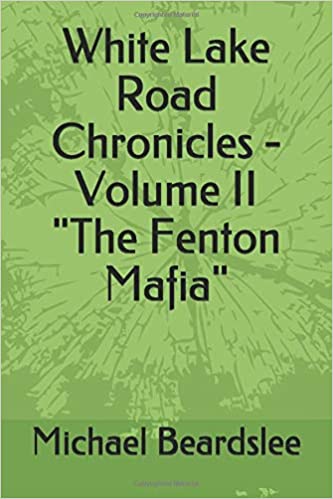
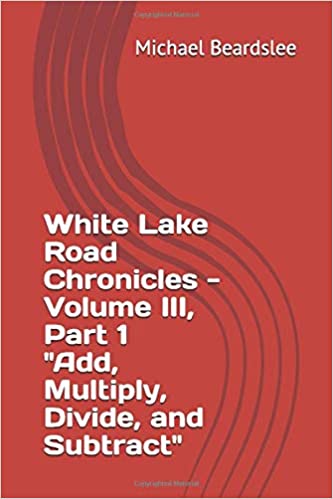
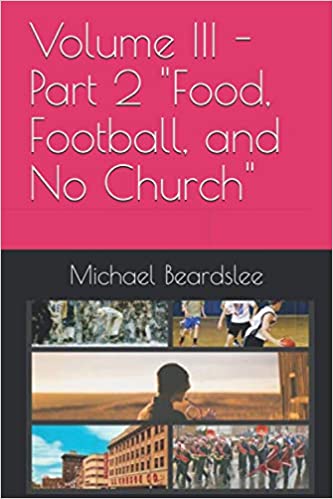
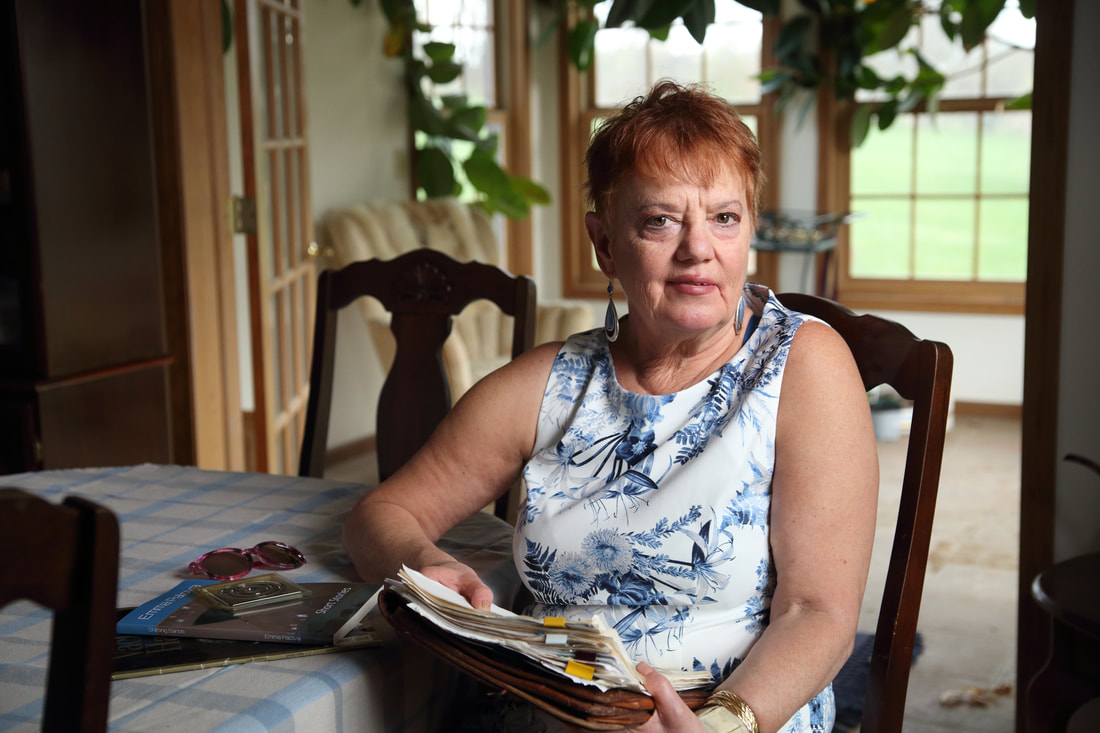
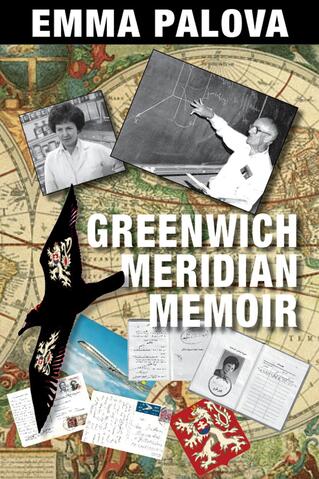
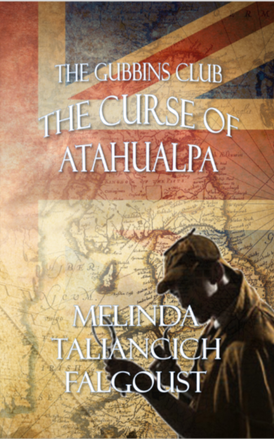
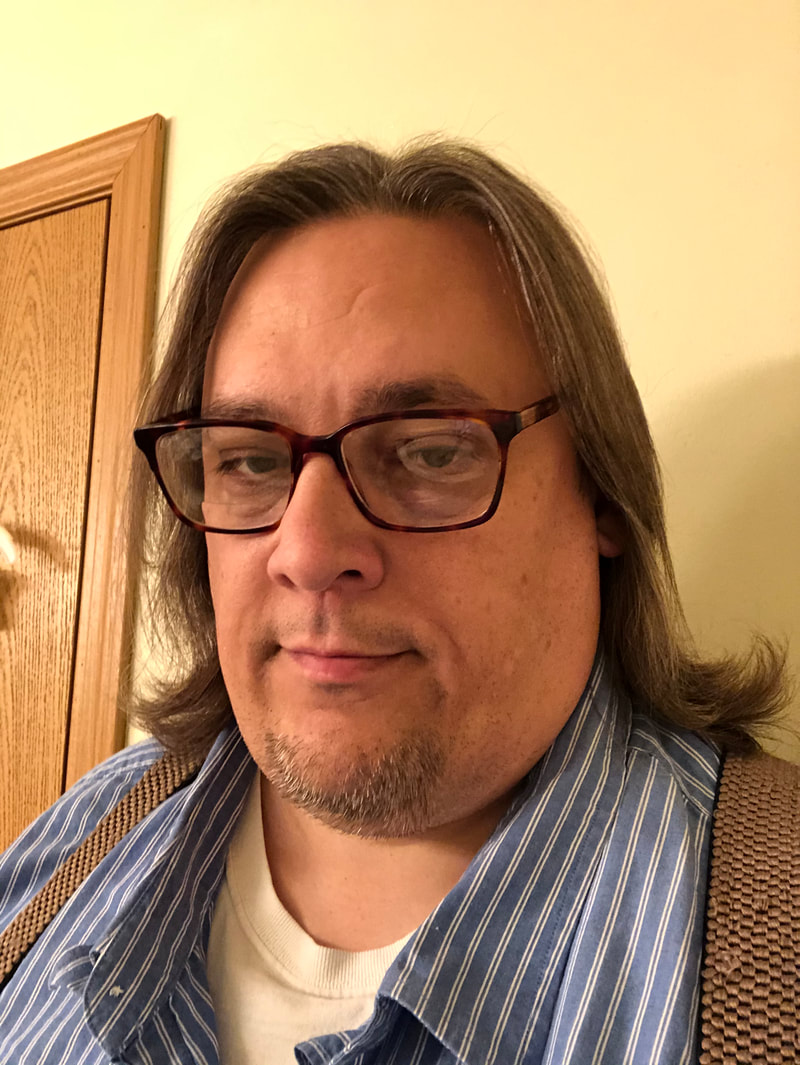
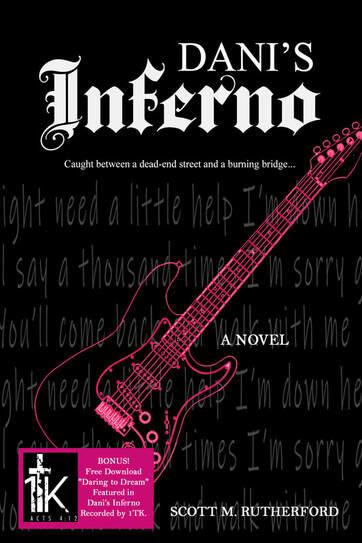
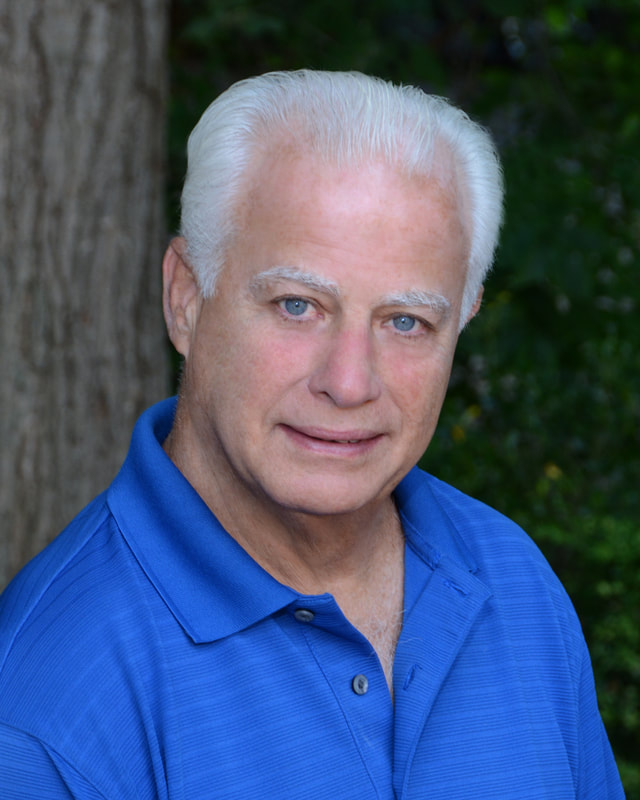
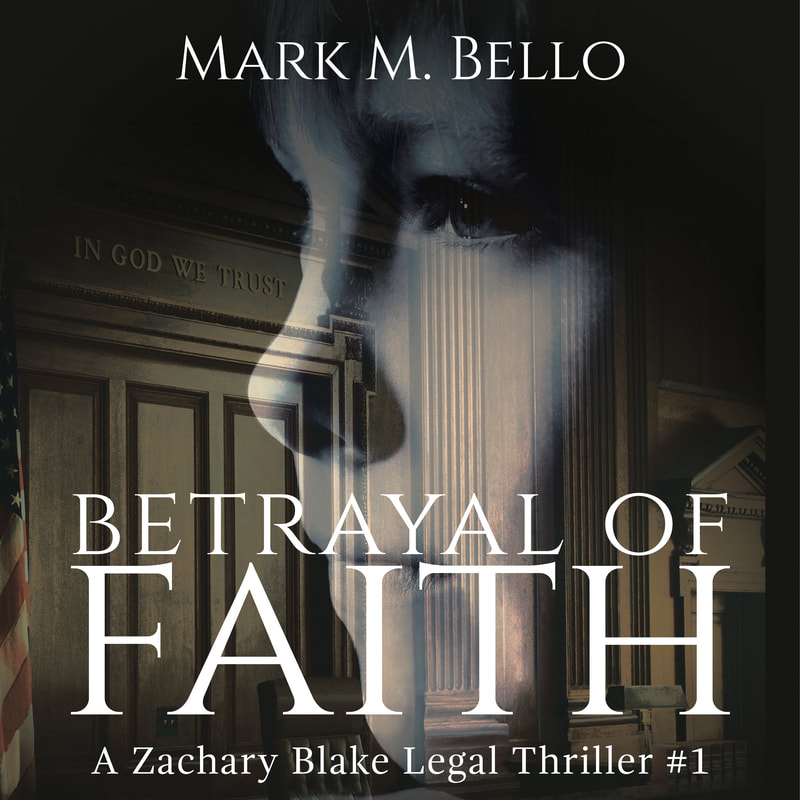
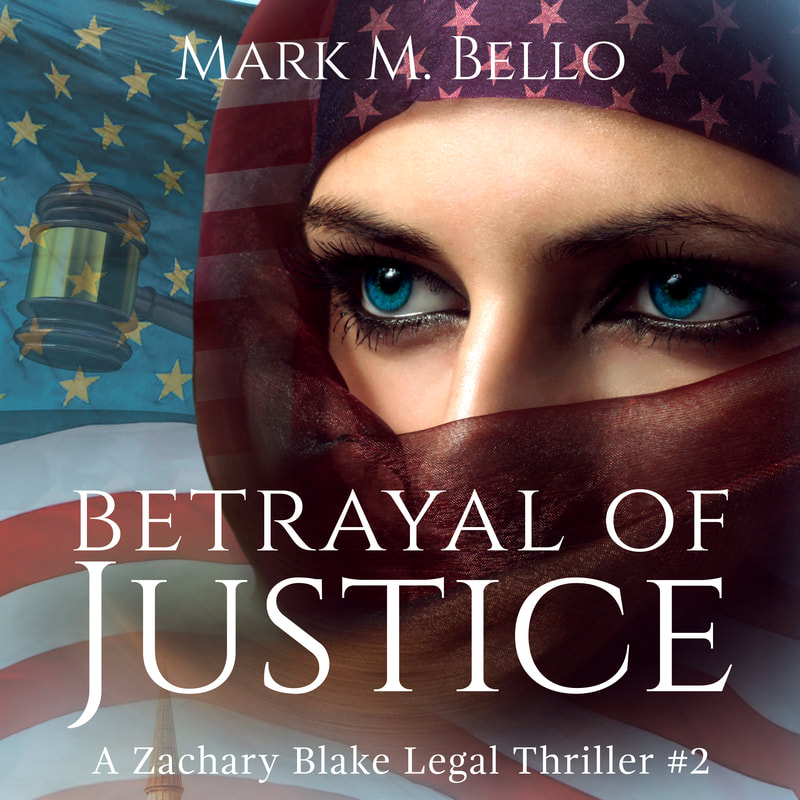
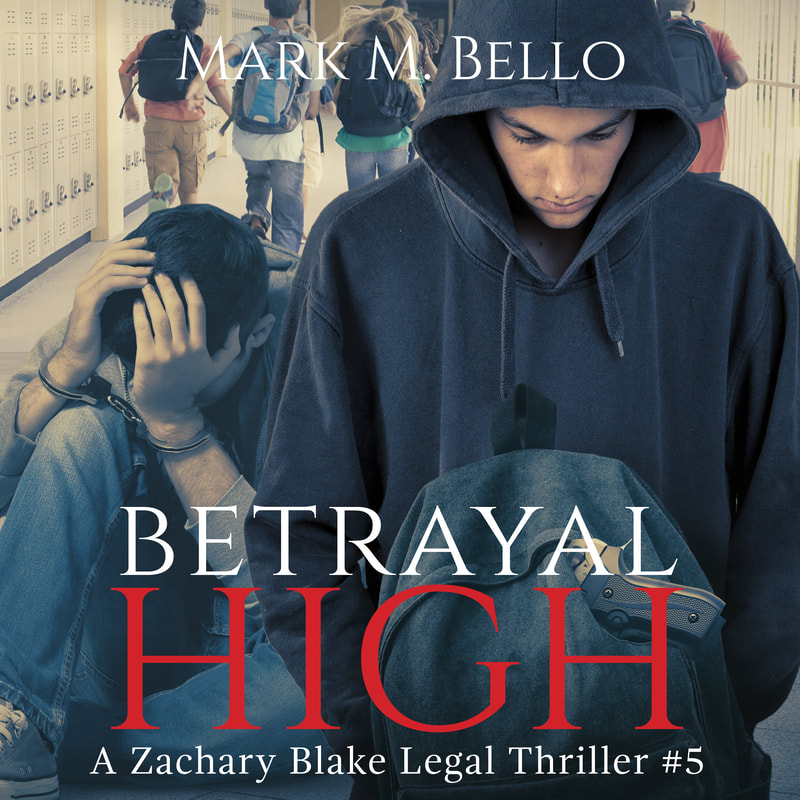
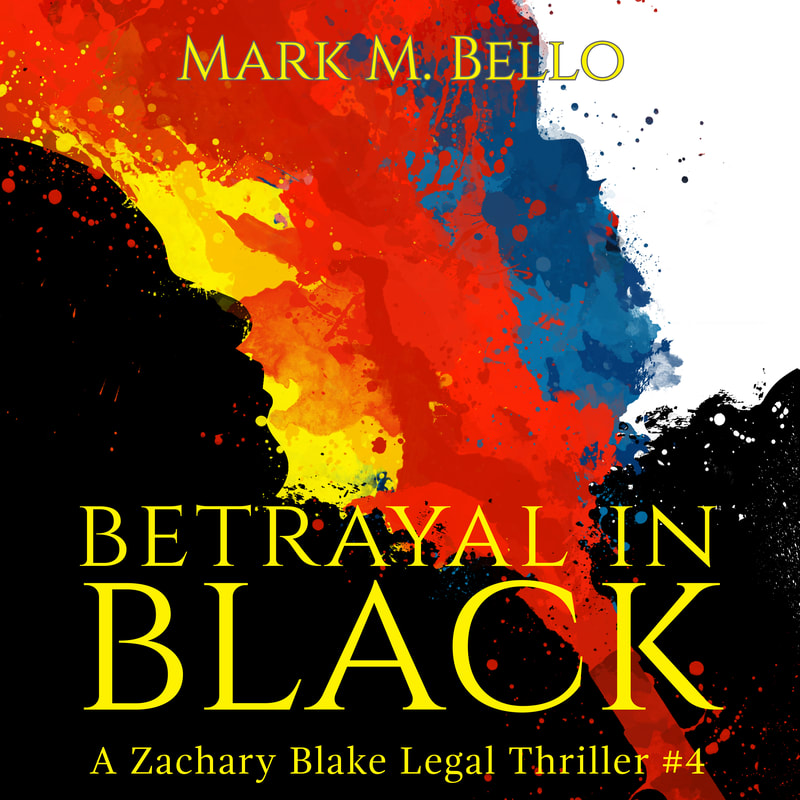
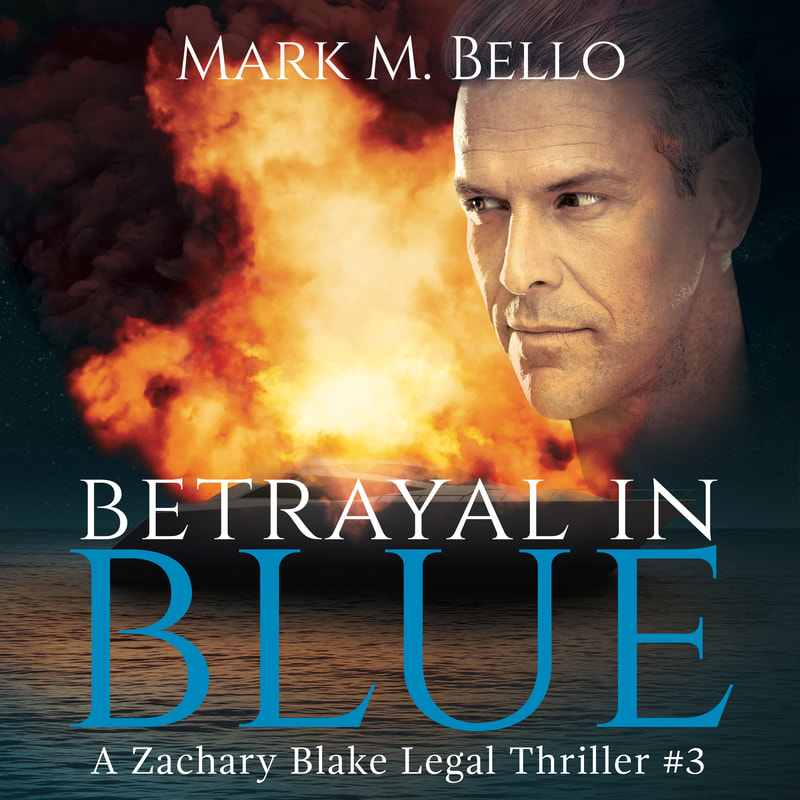
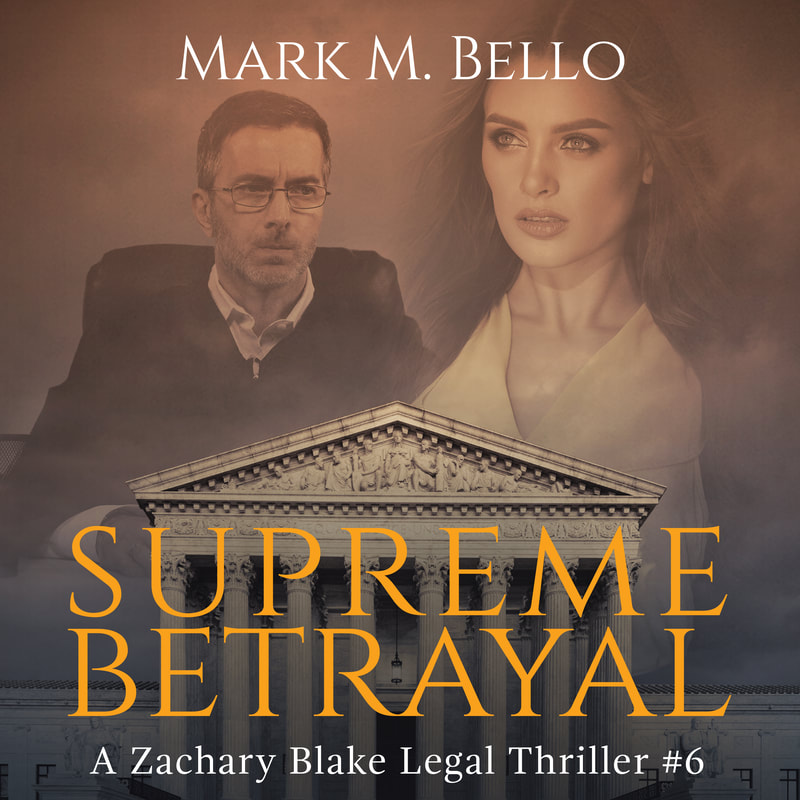
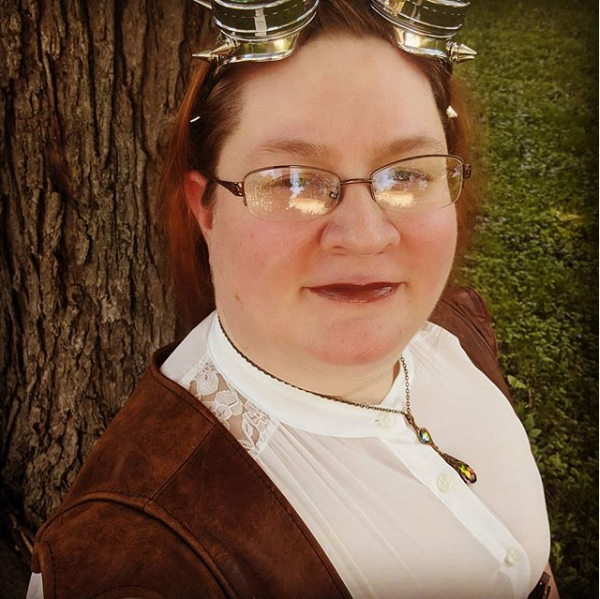
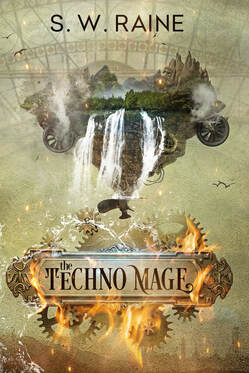

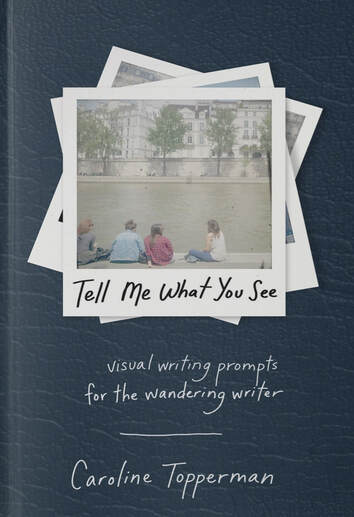
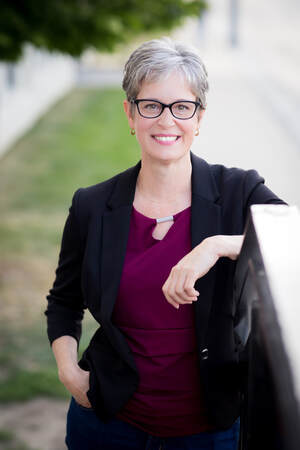
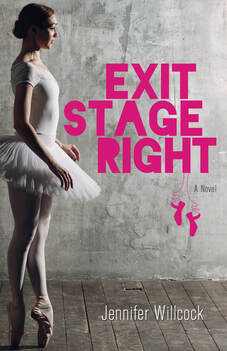
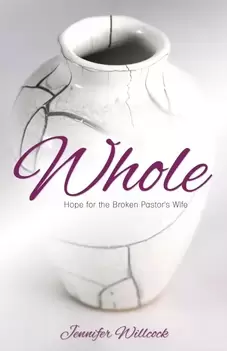
 RSS Feed
RSS Feed